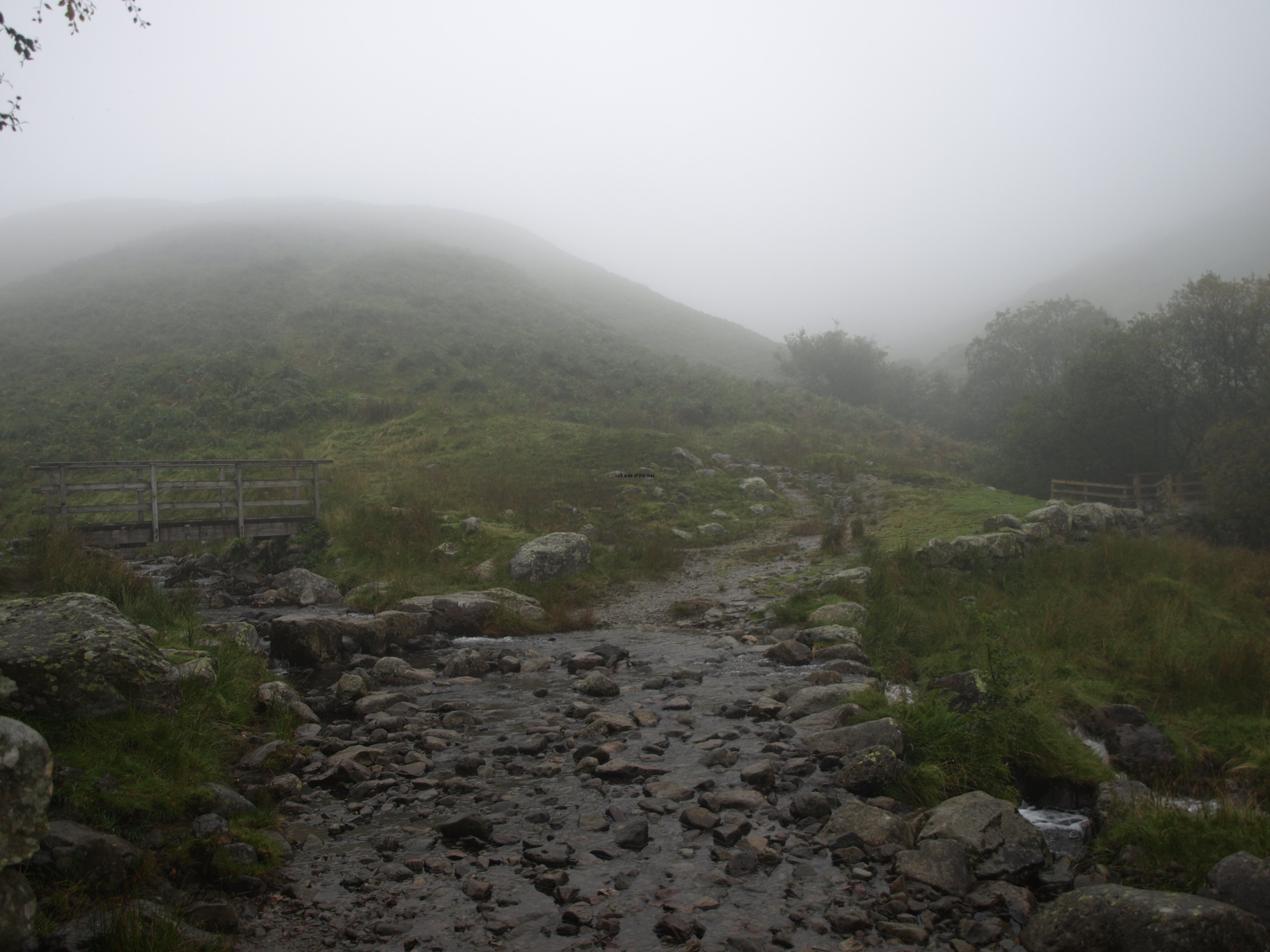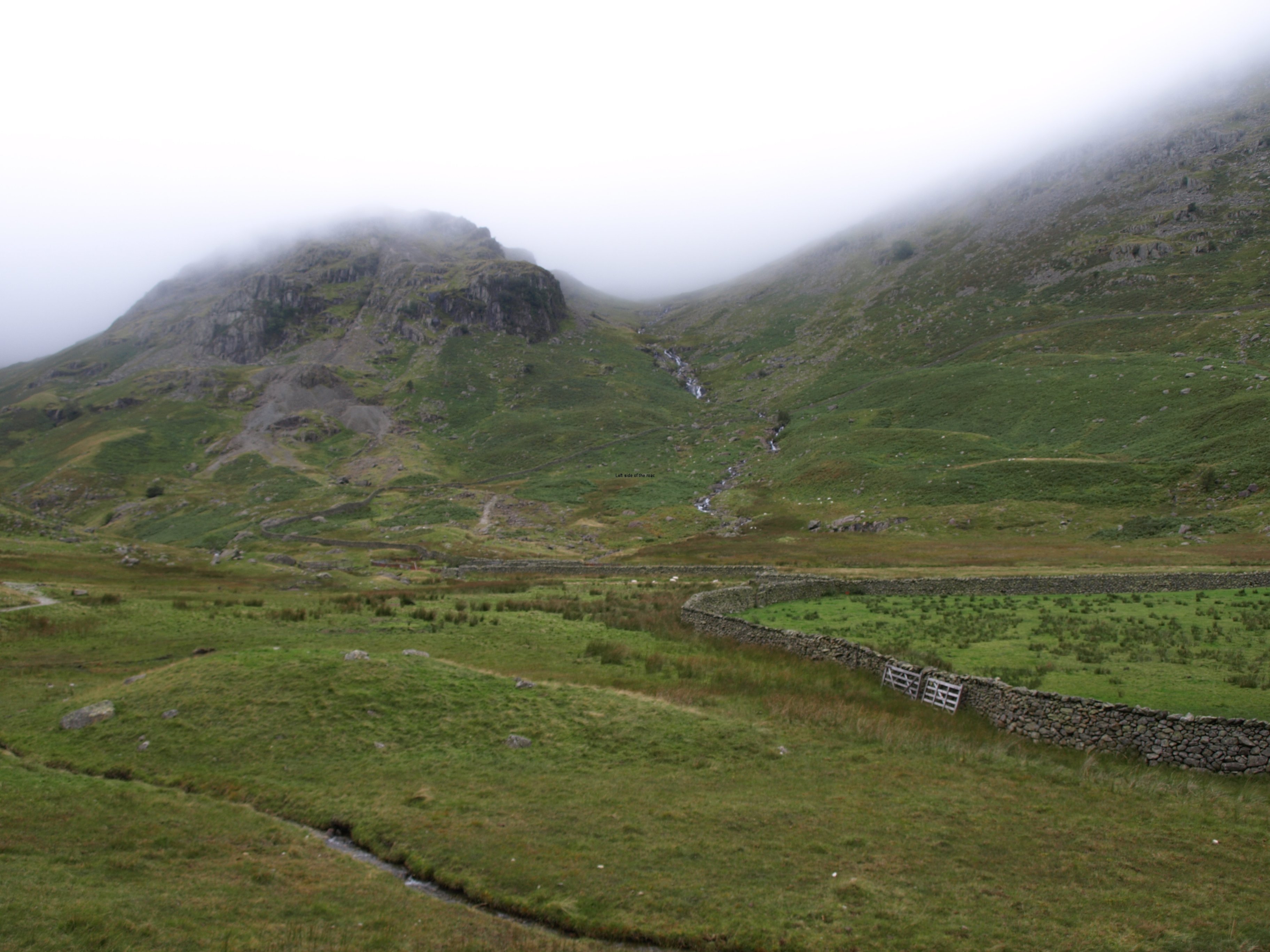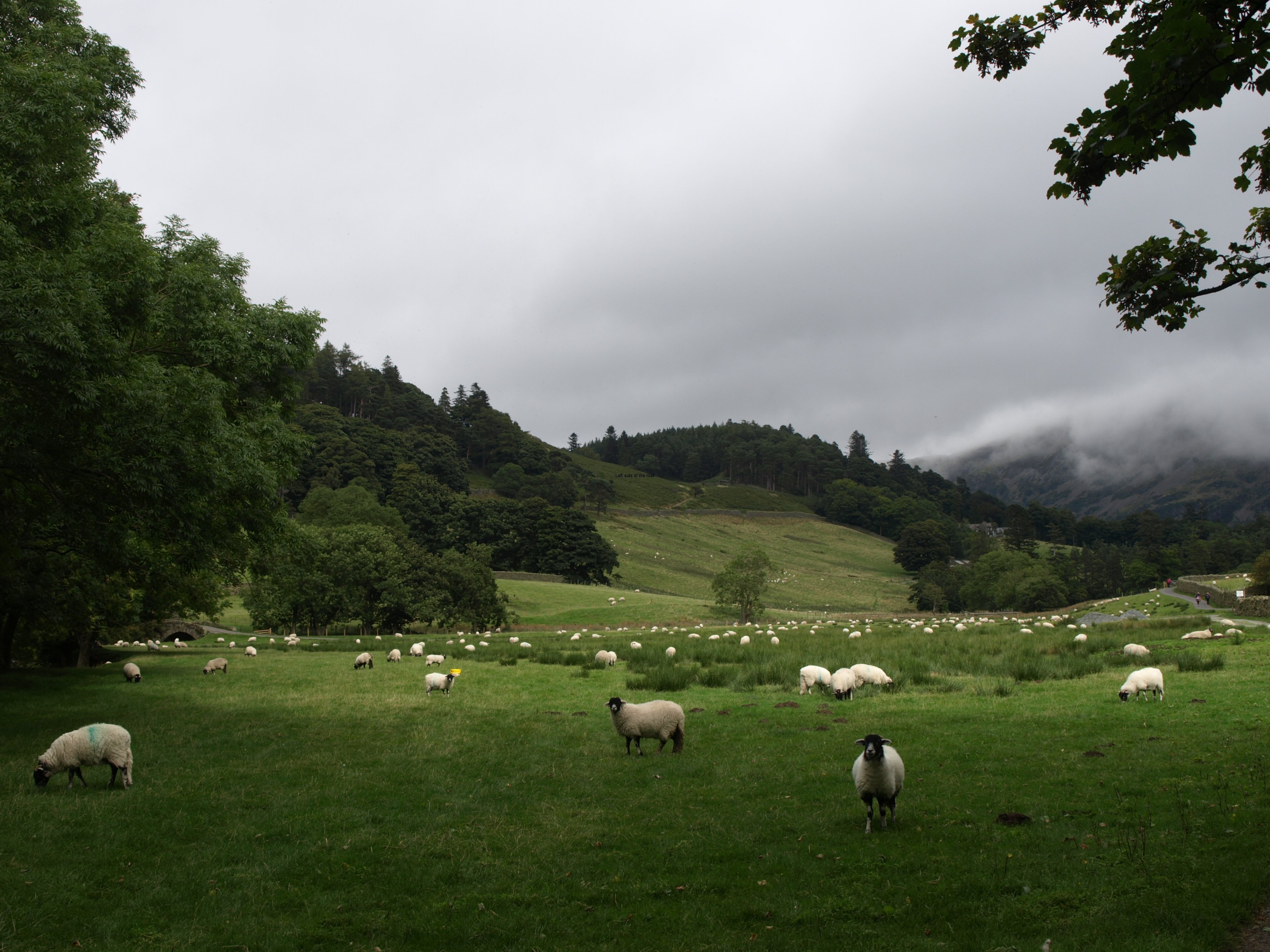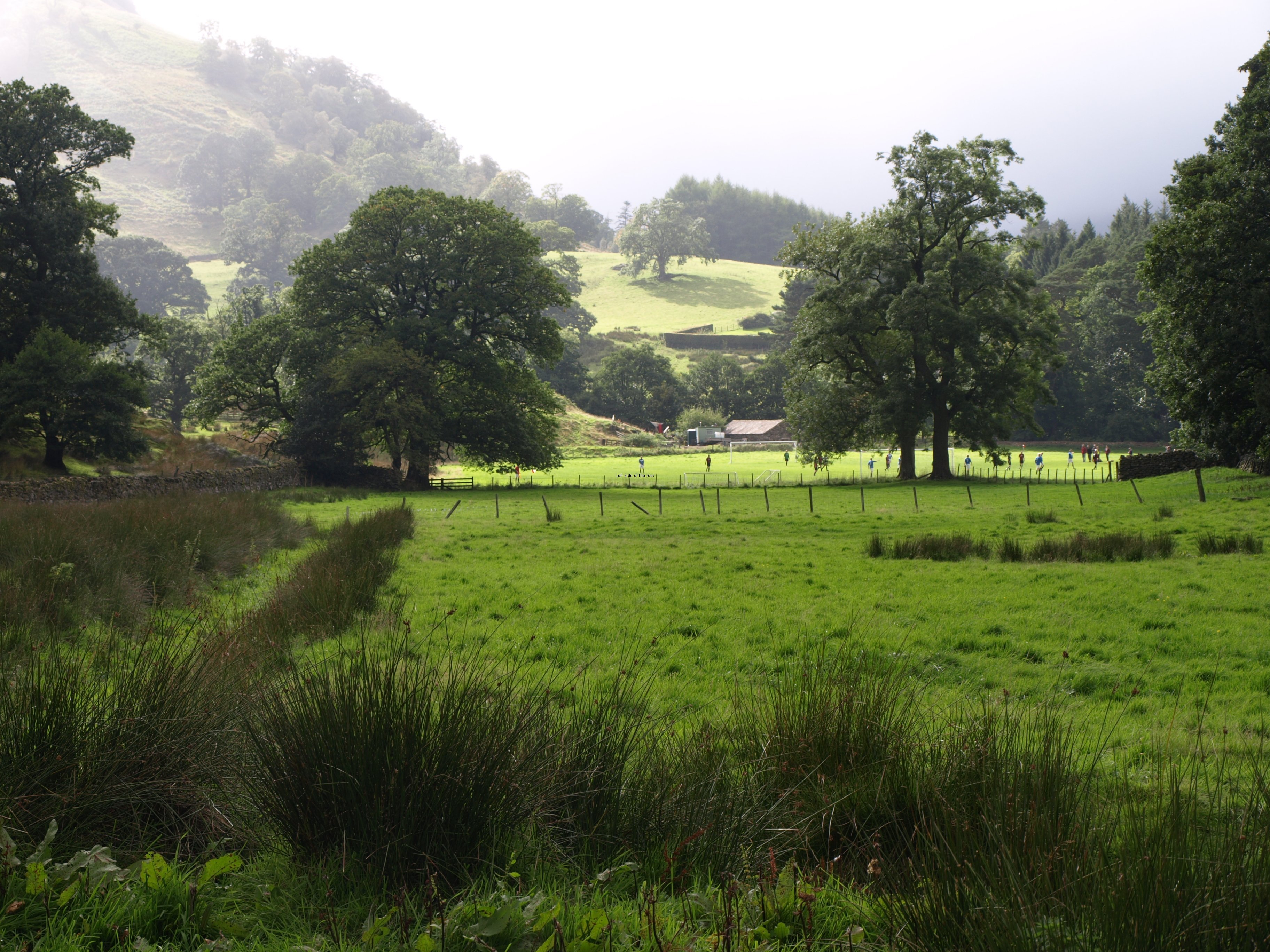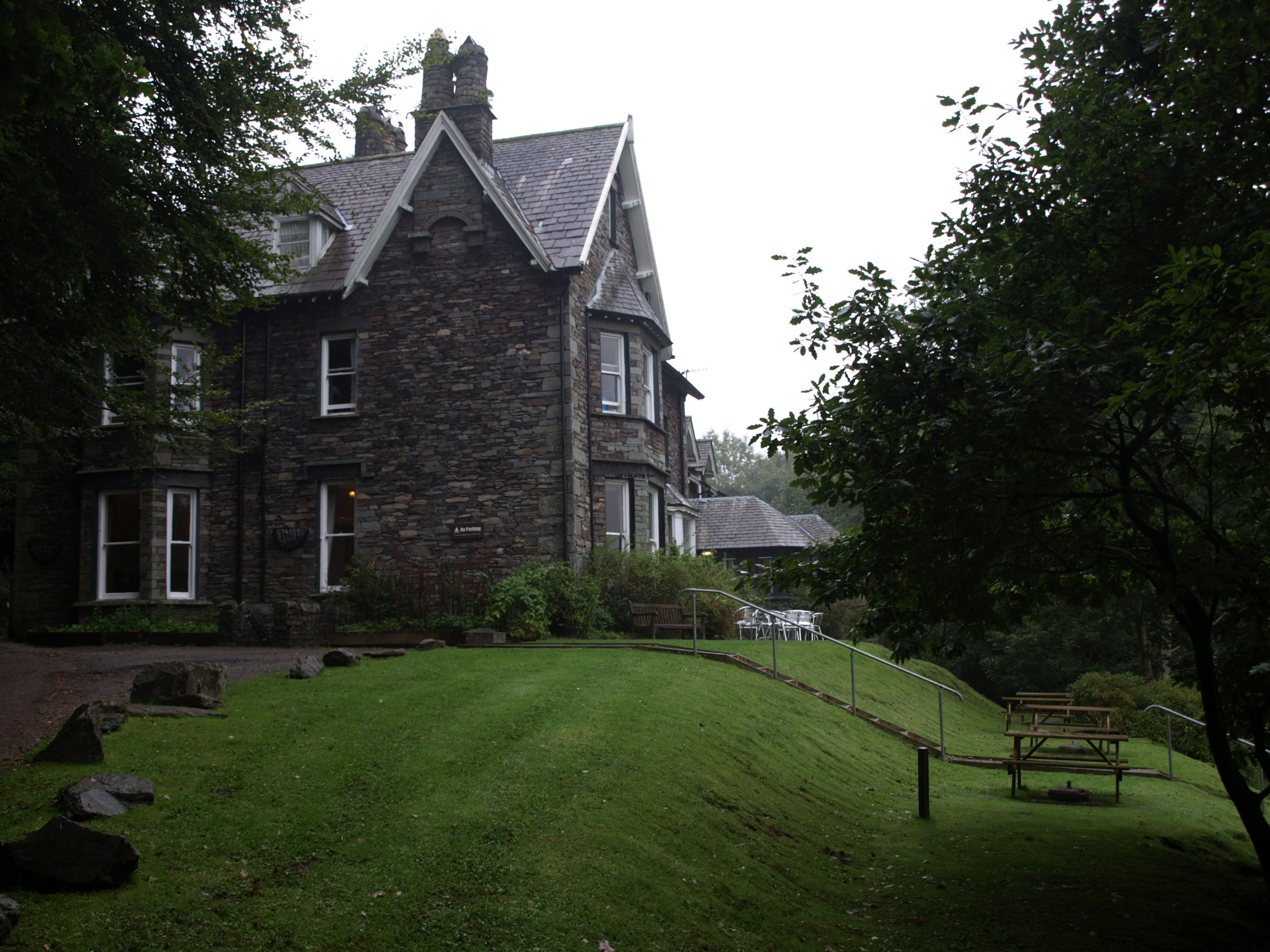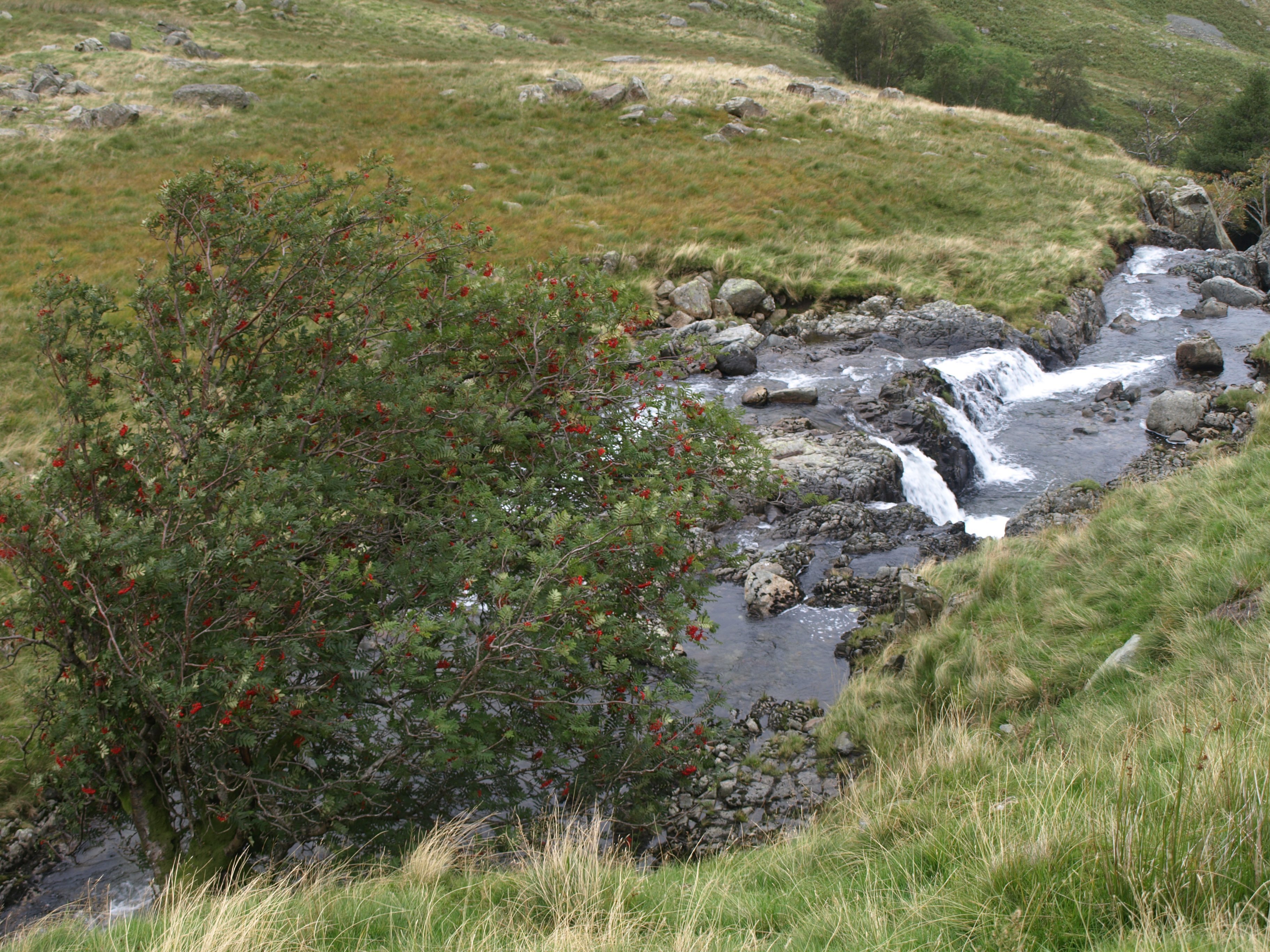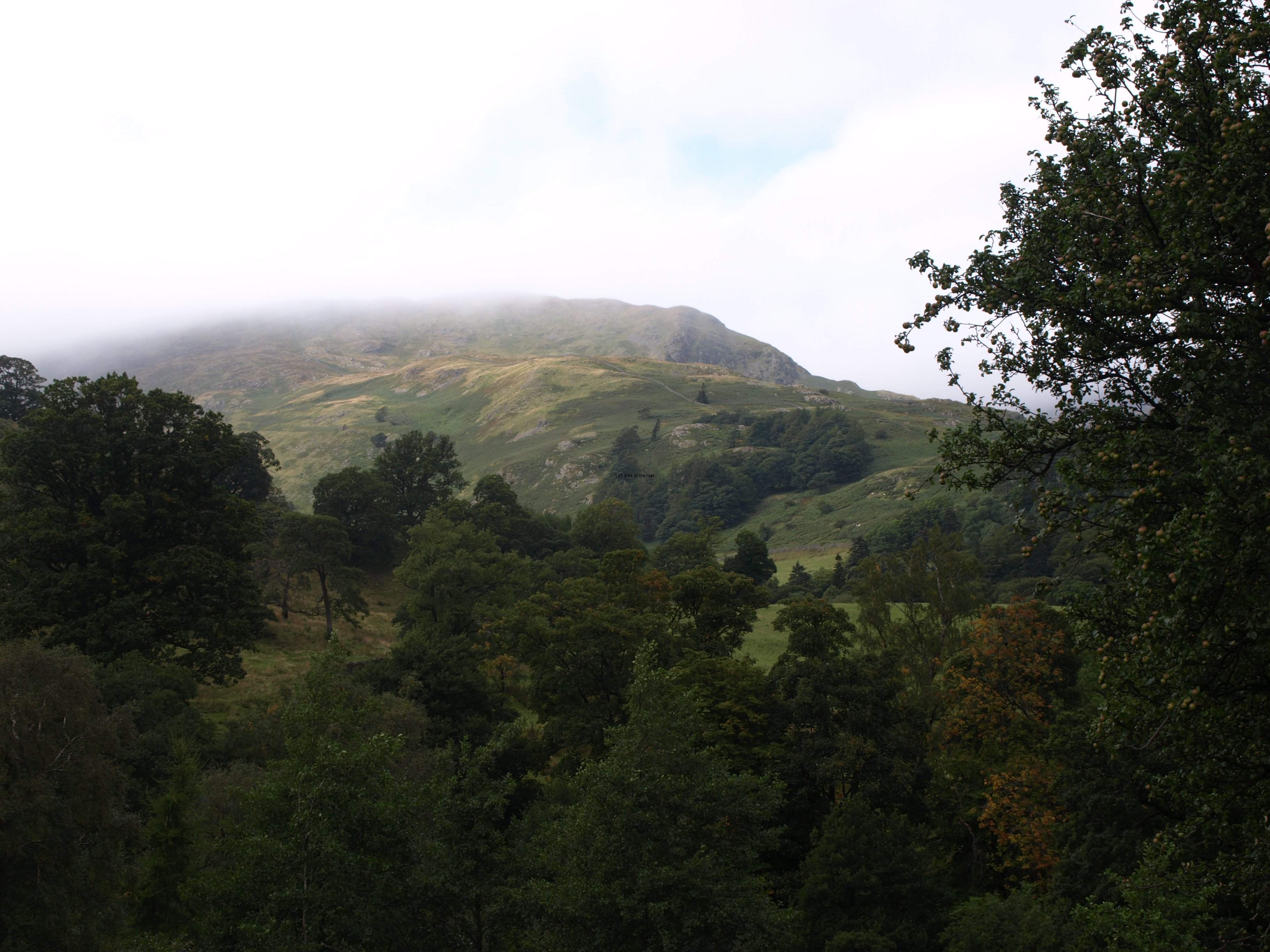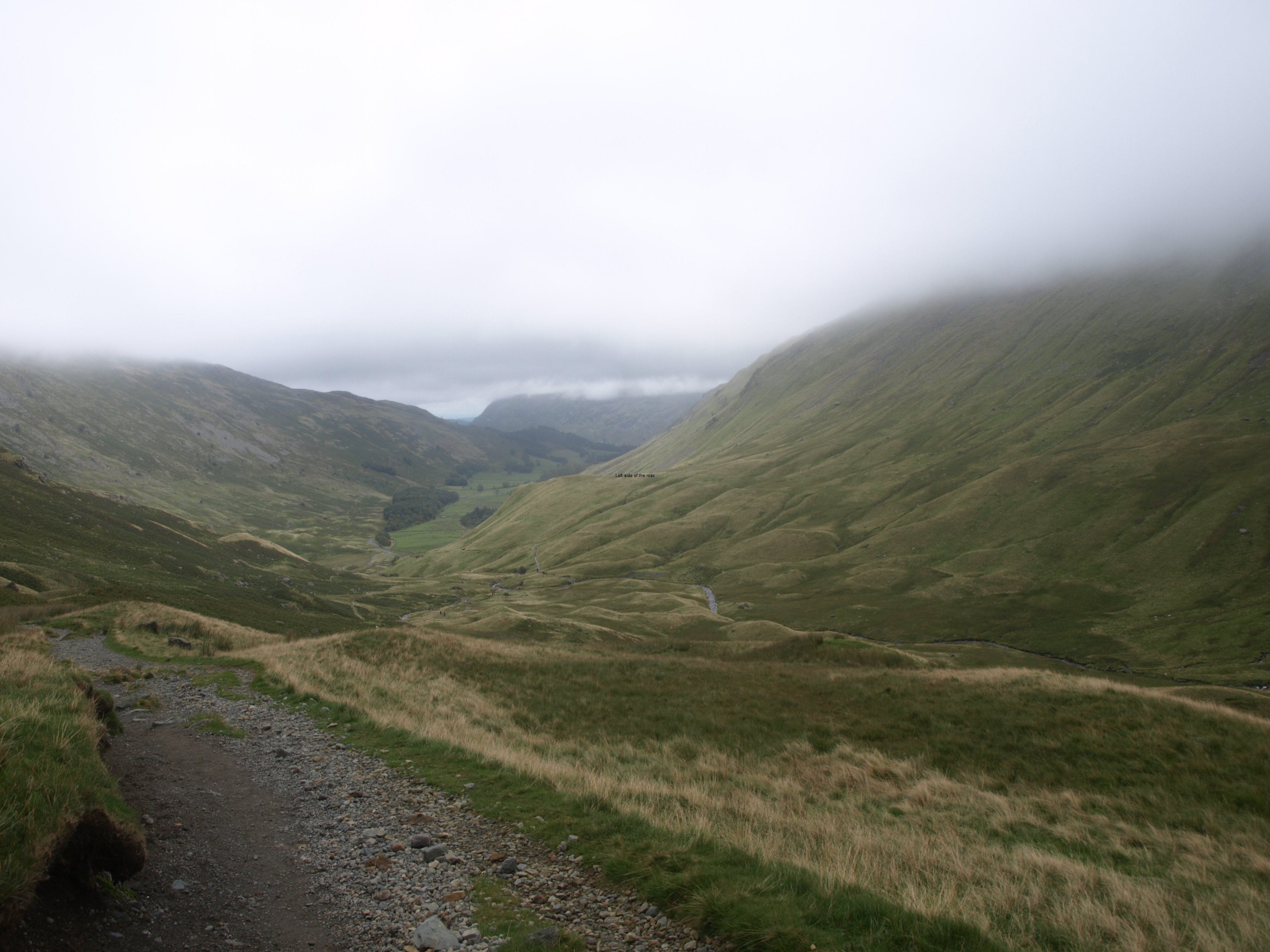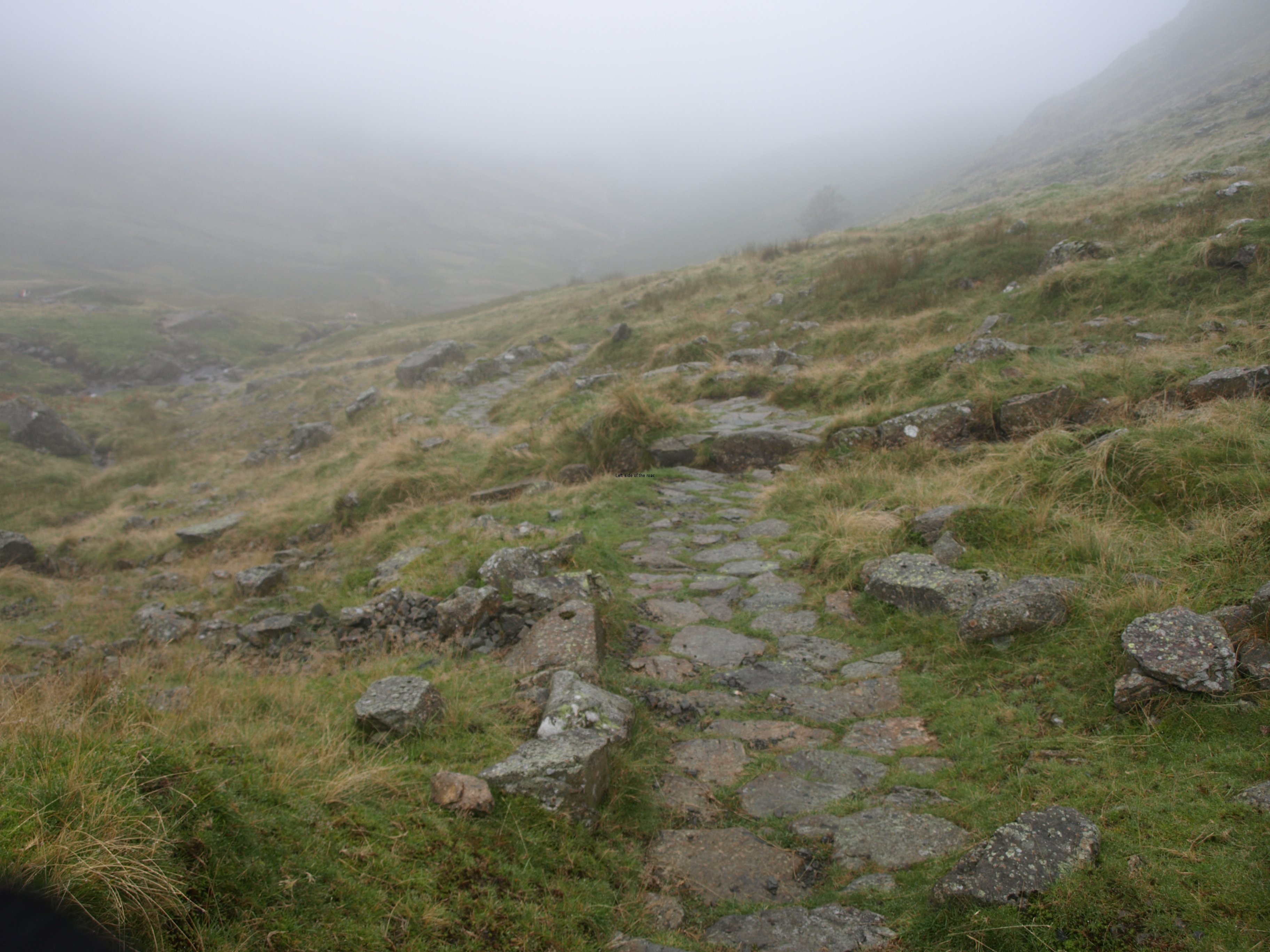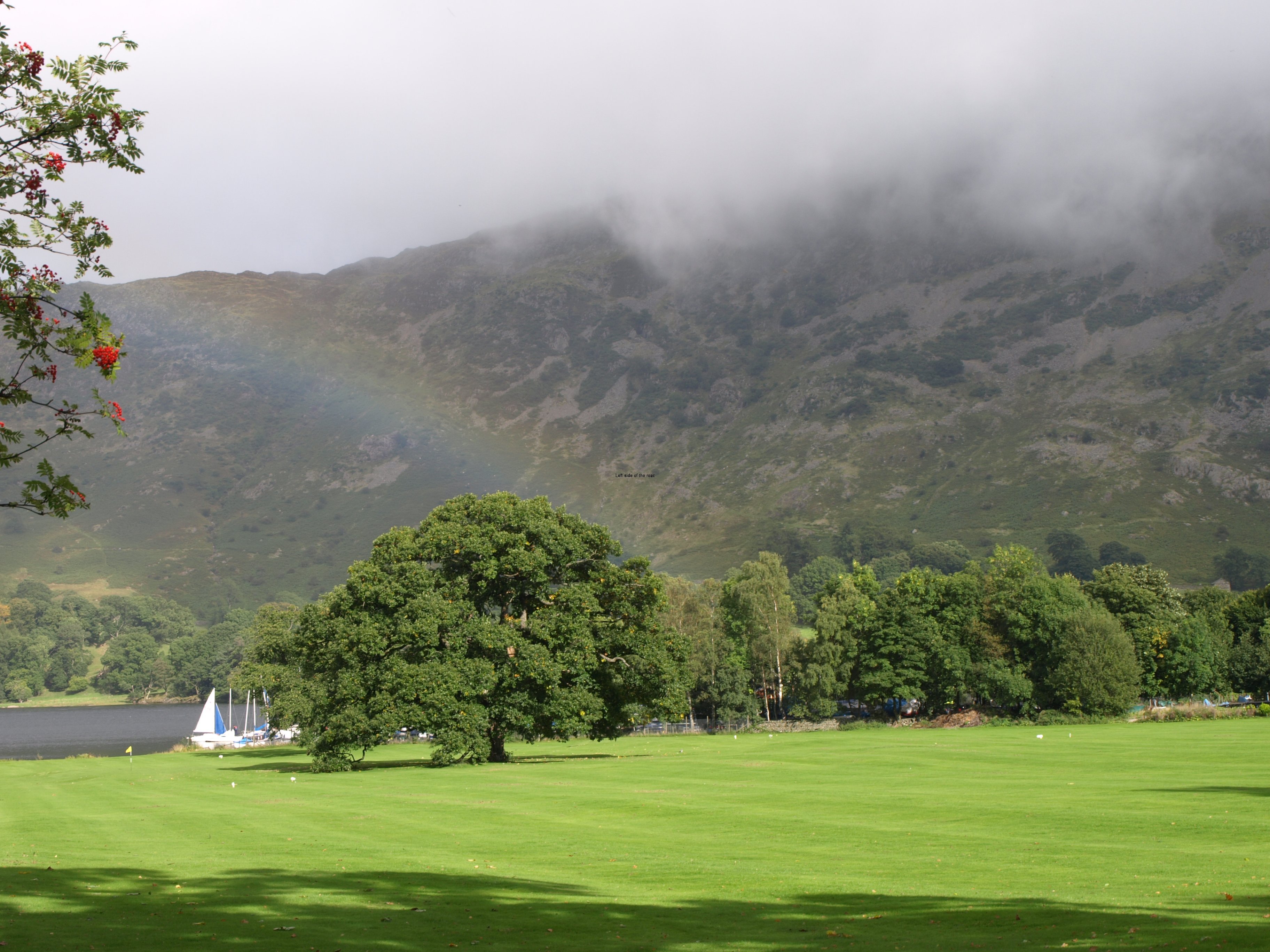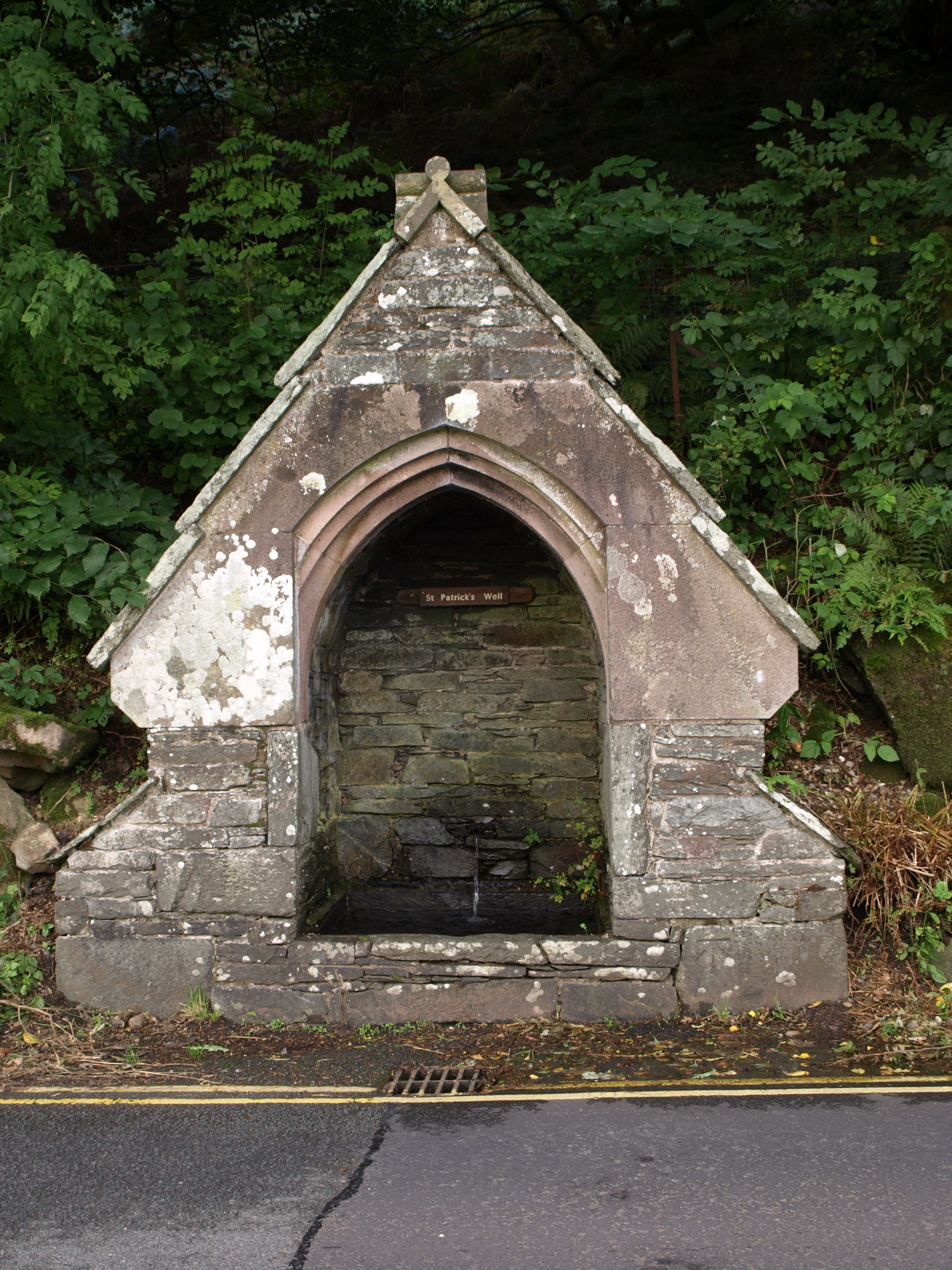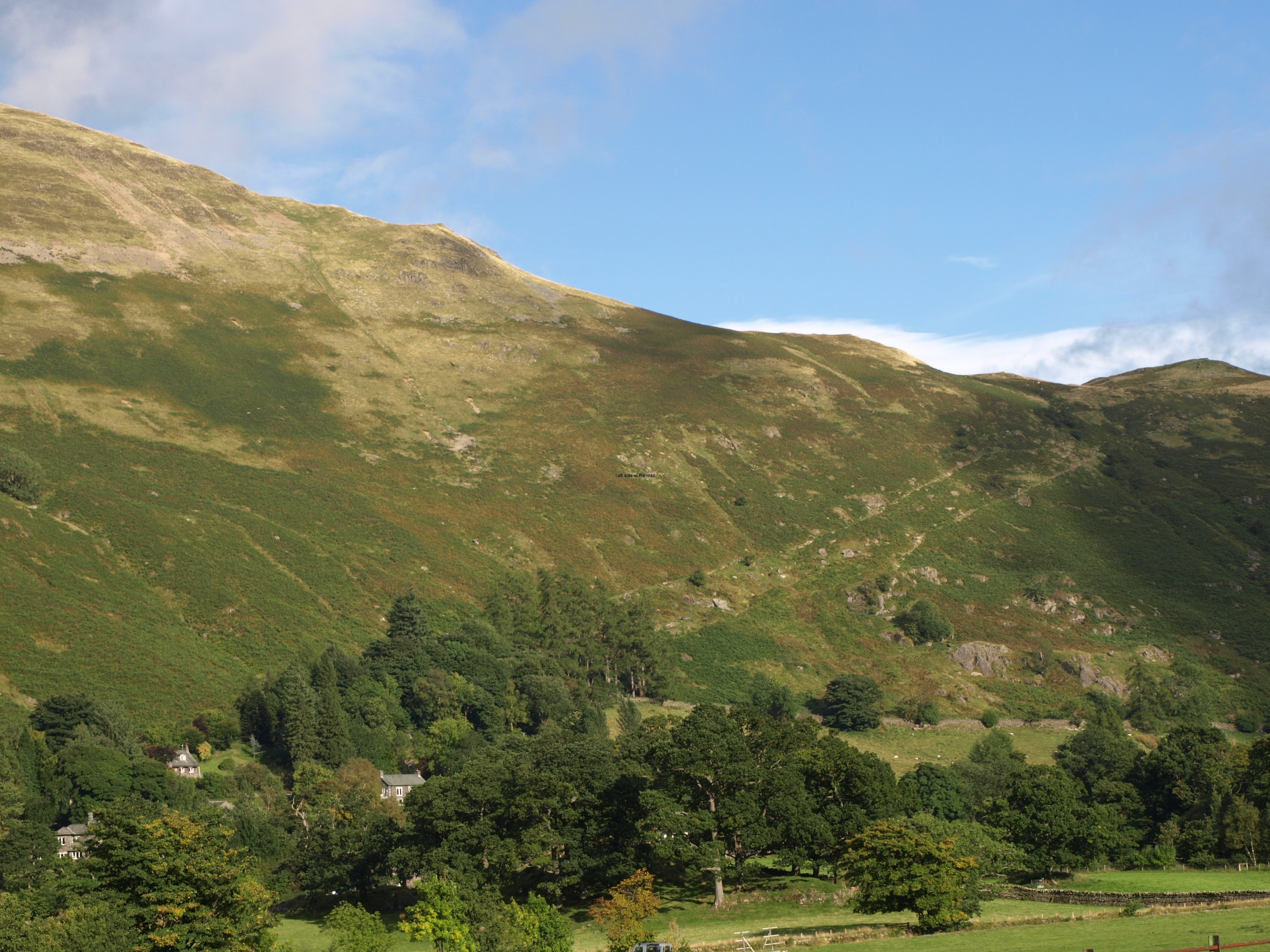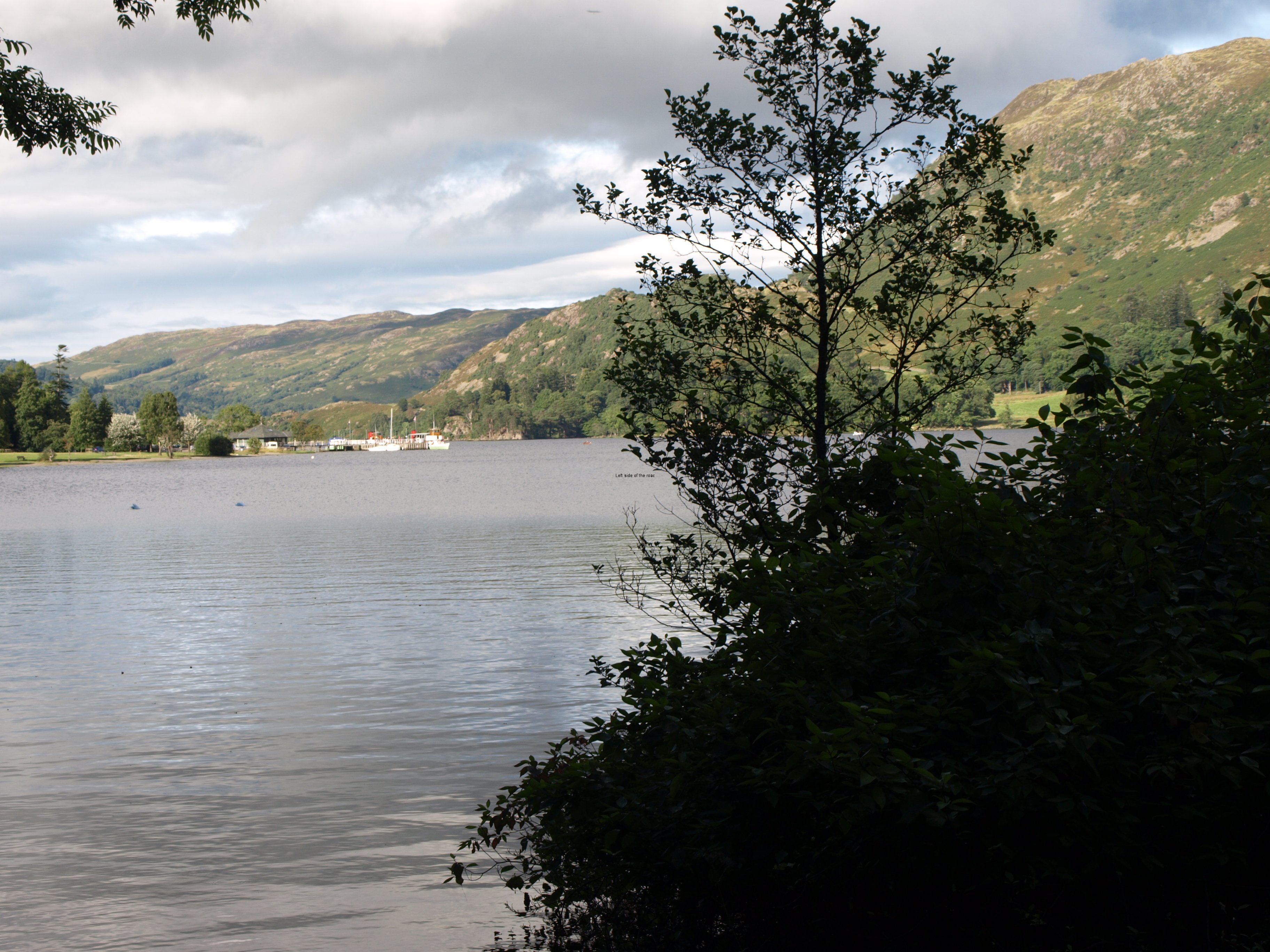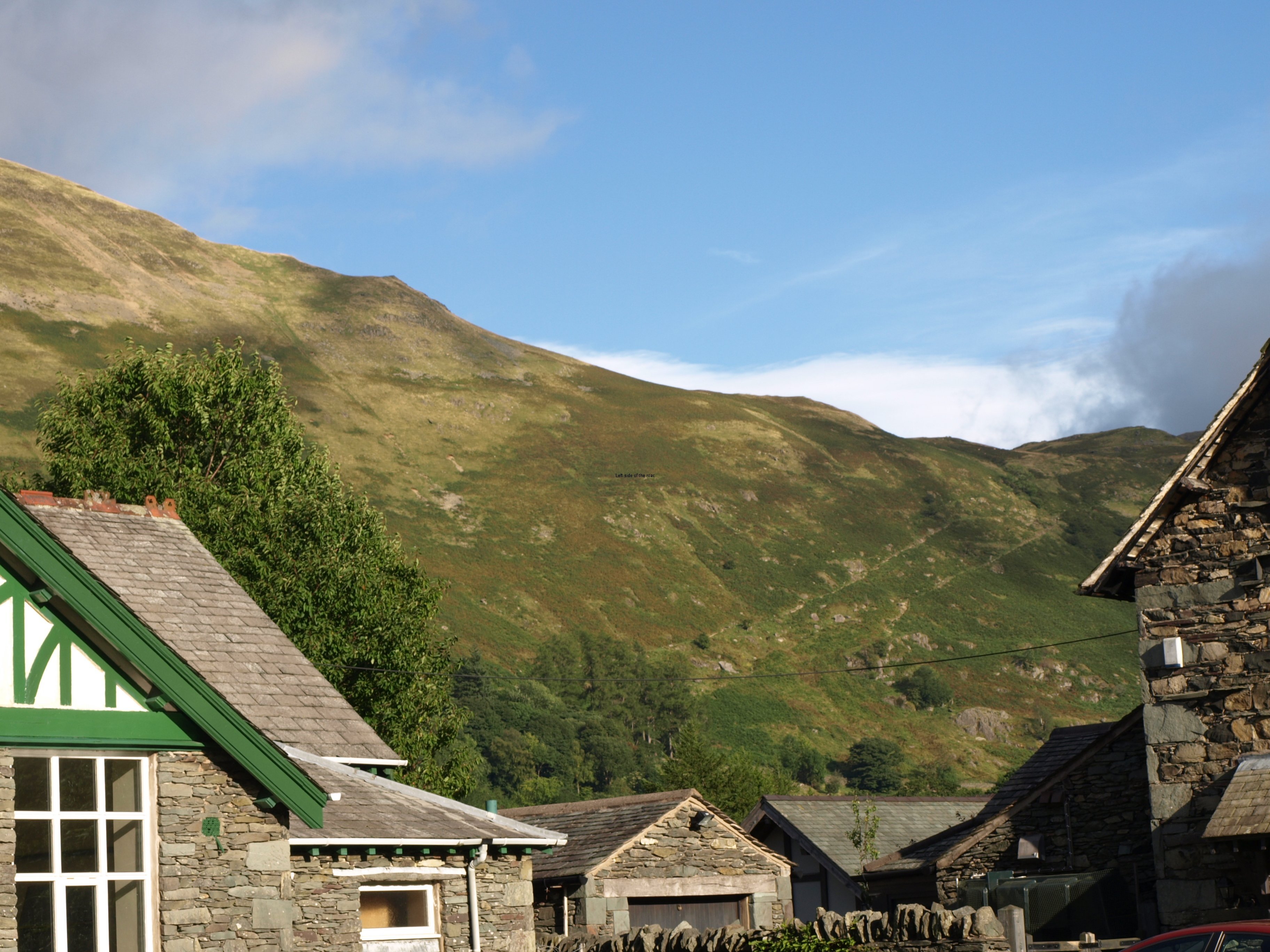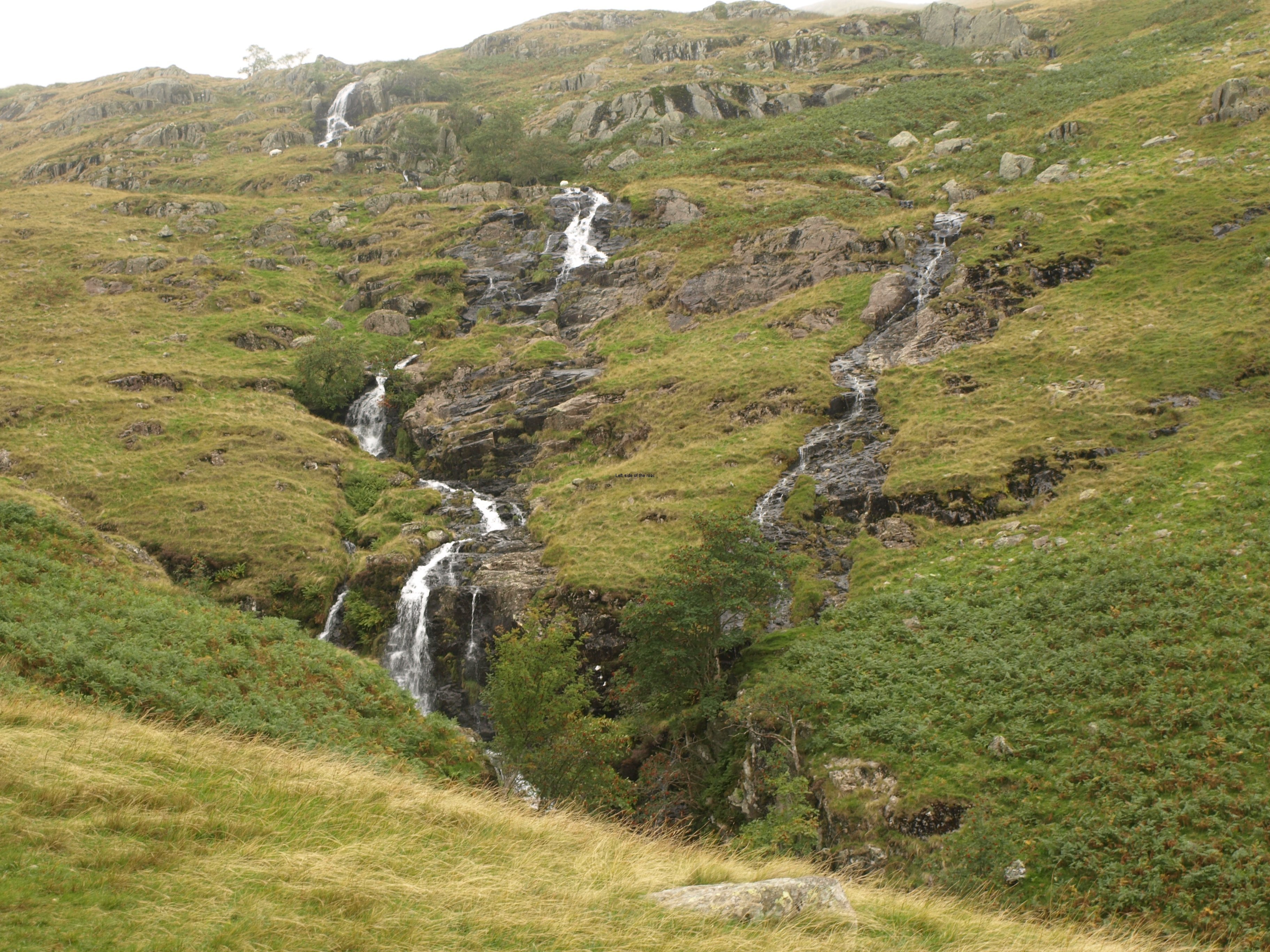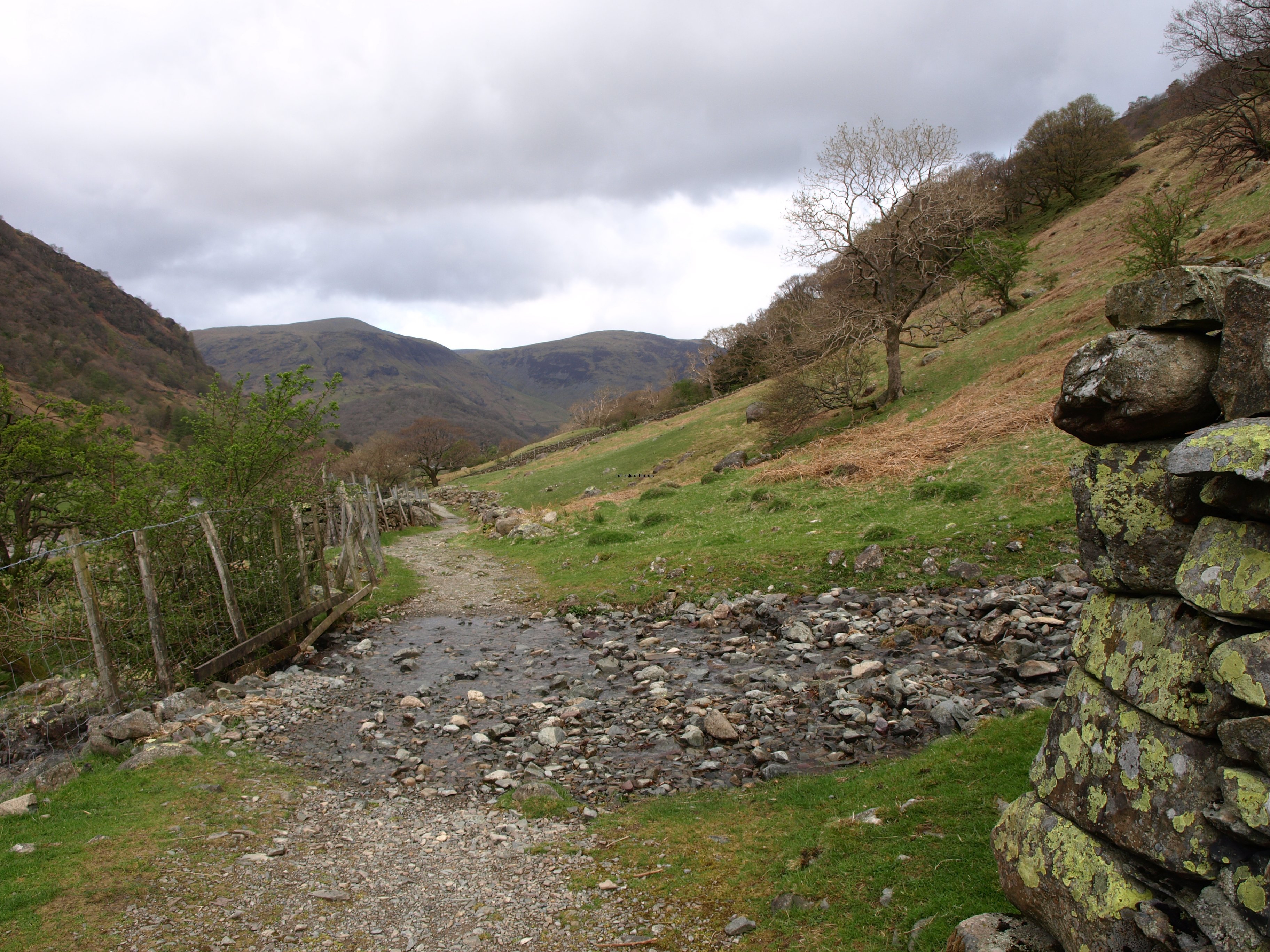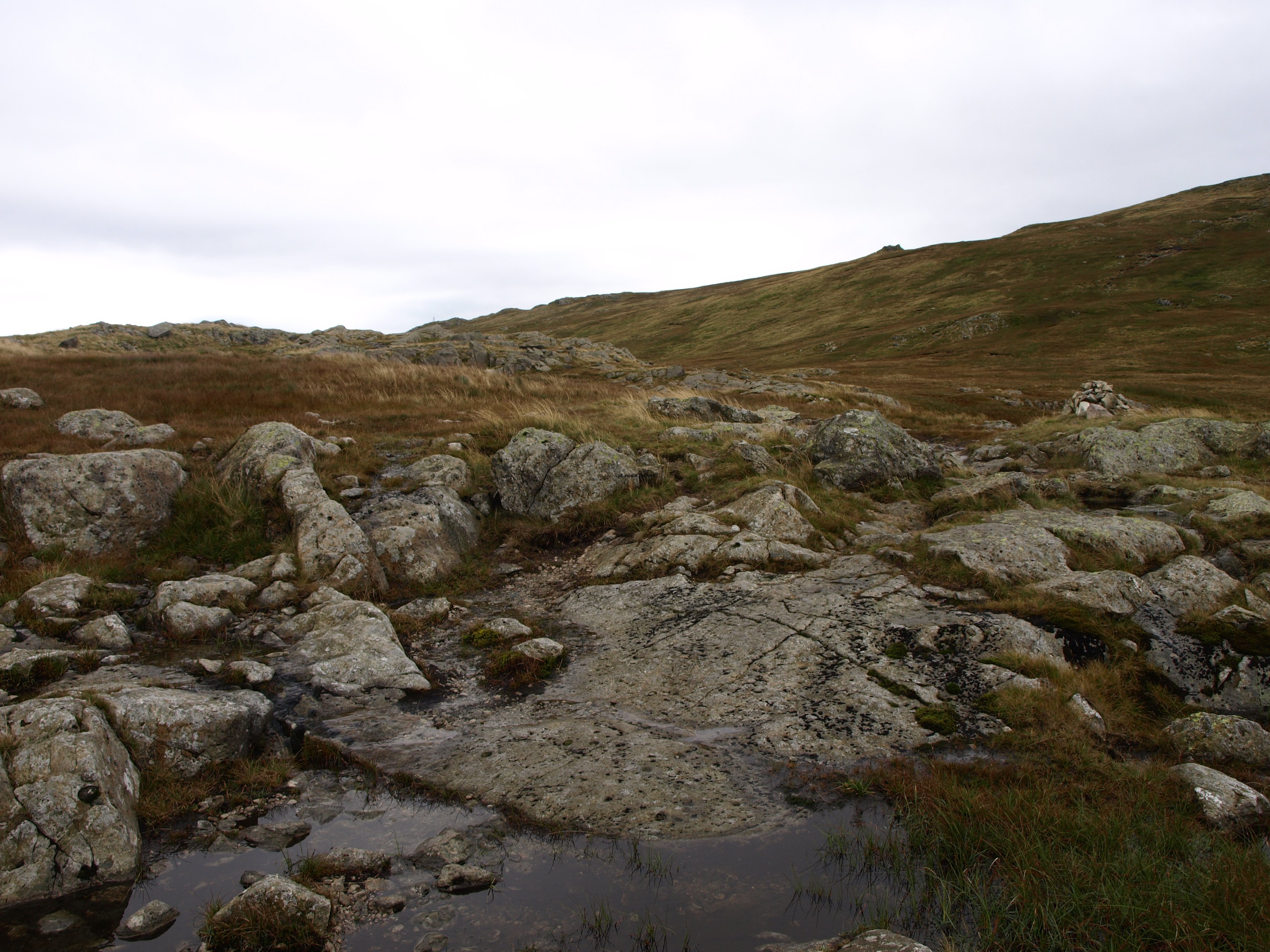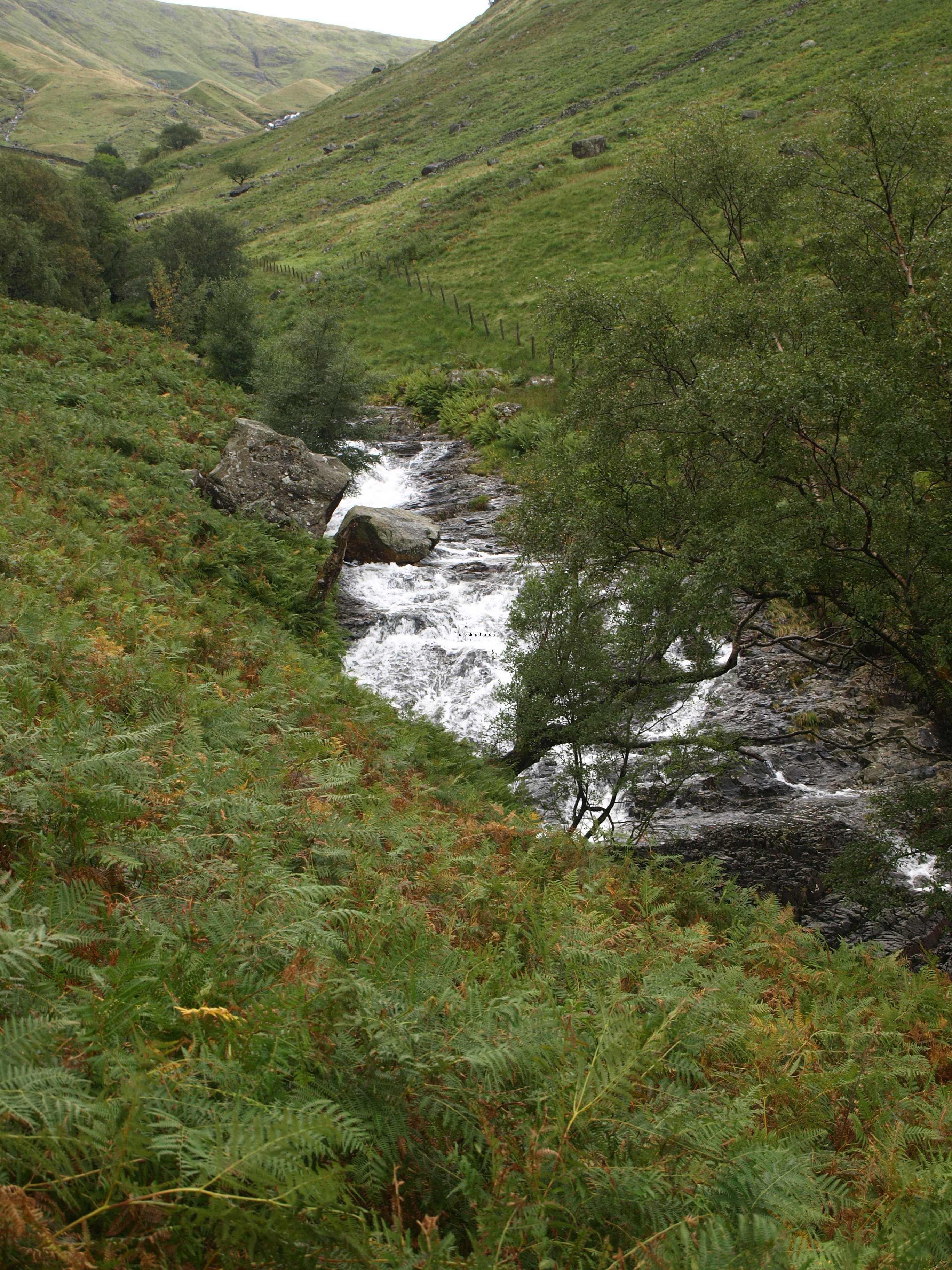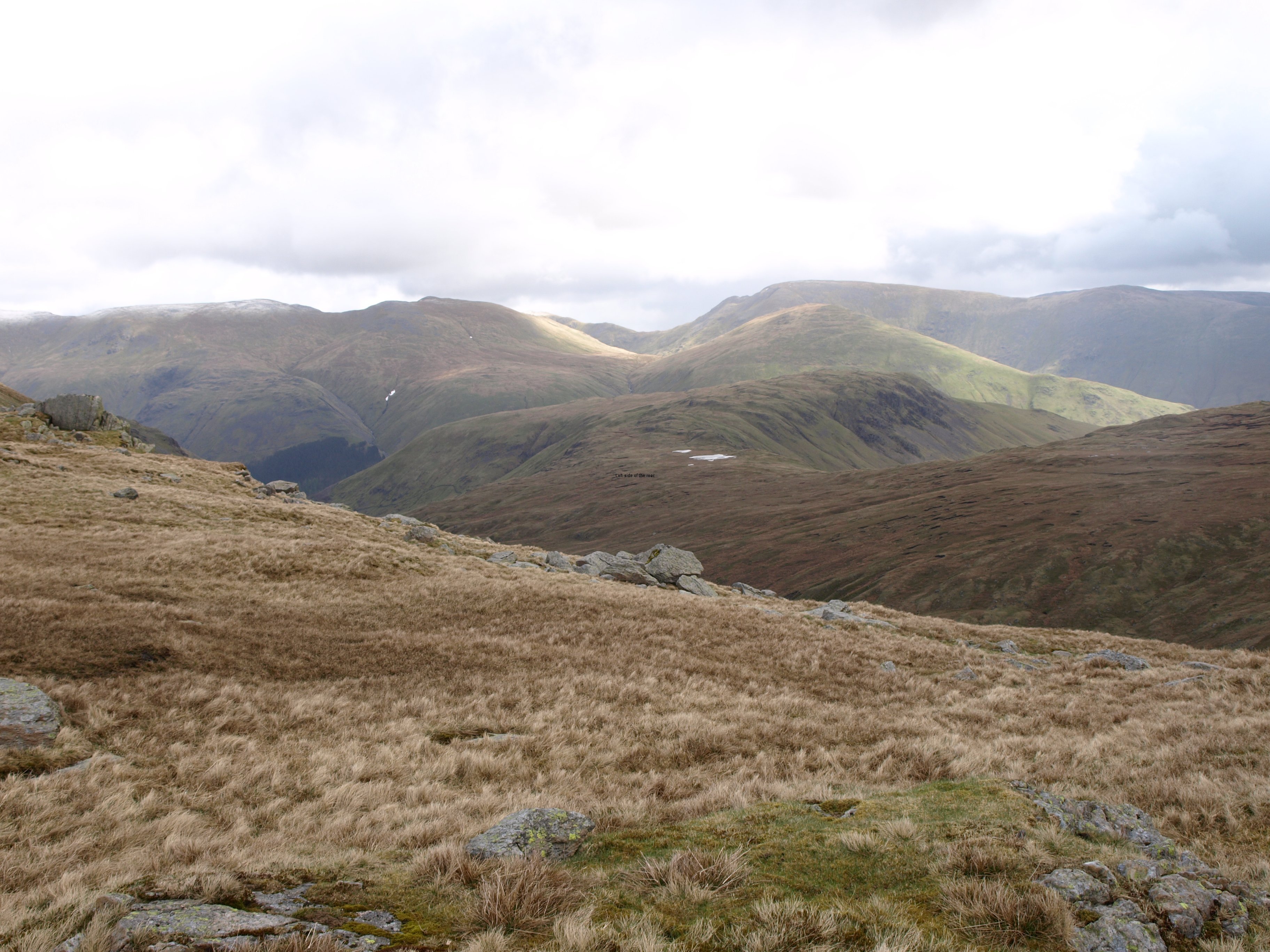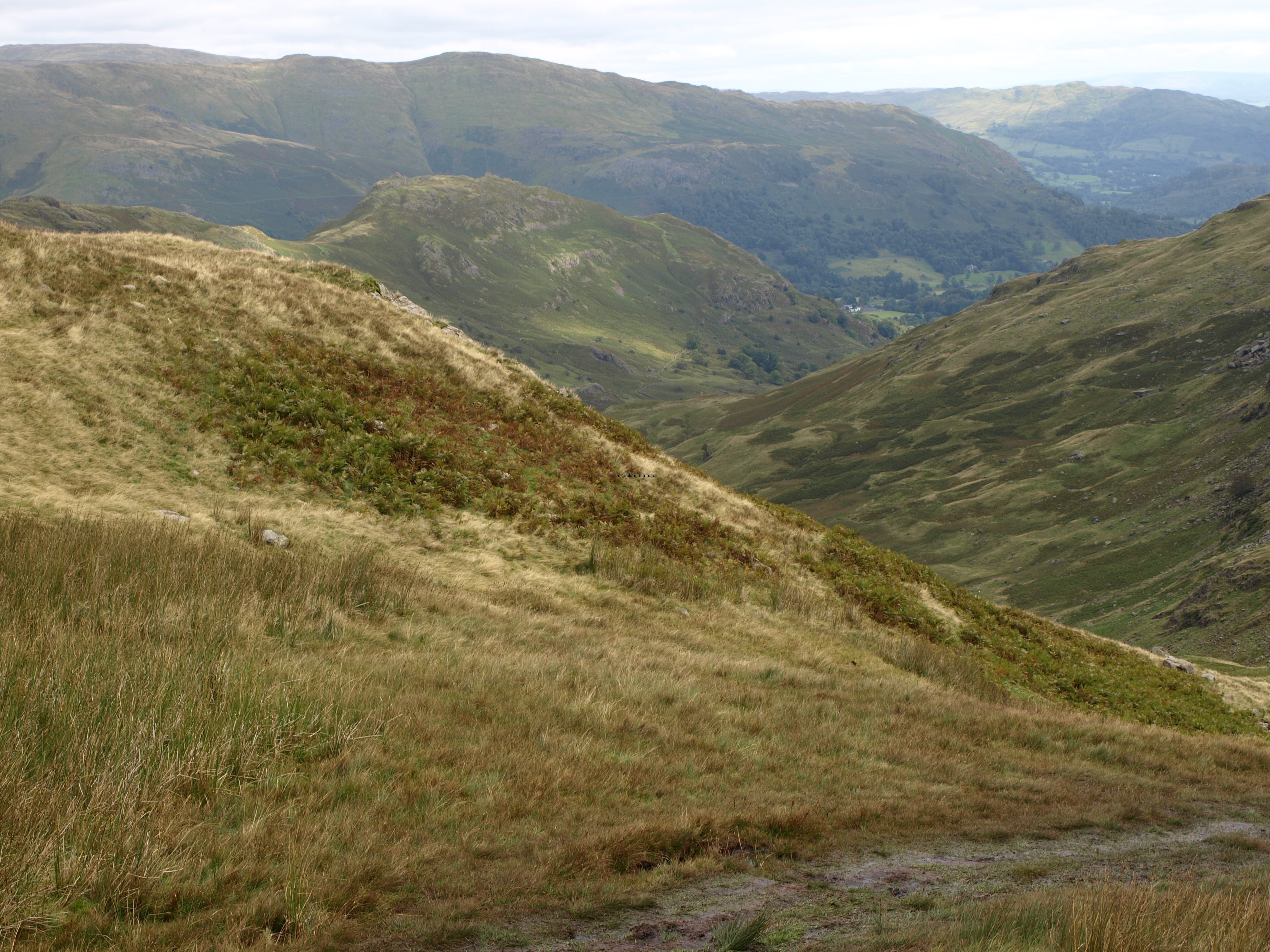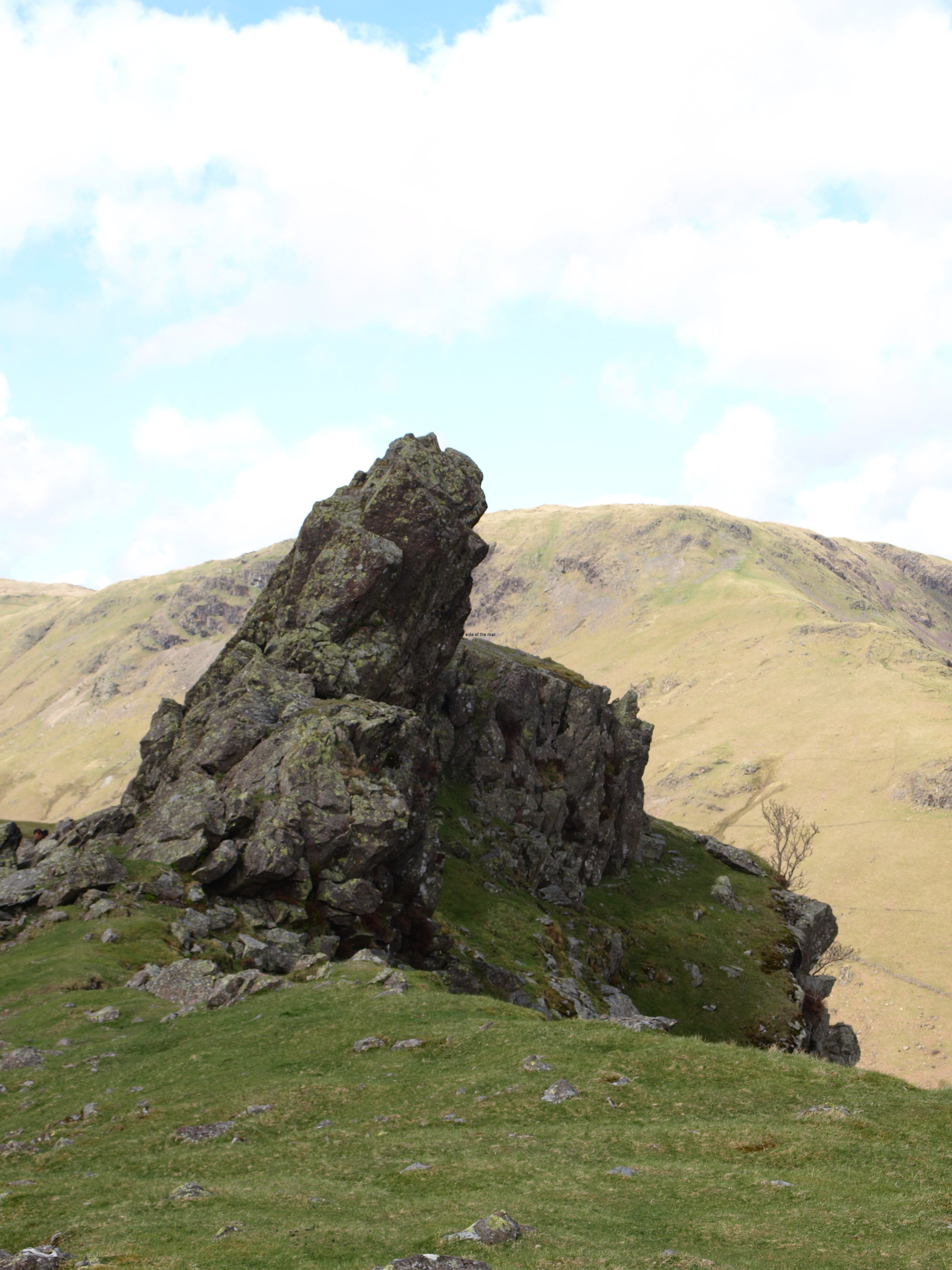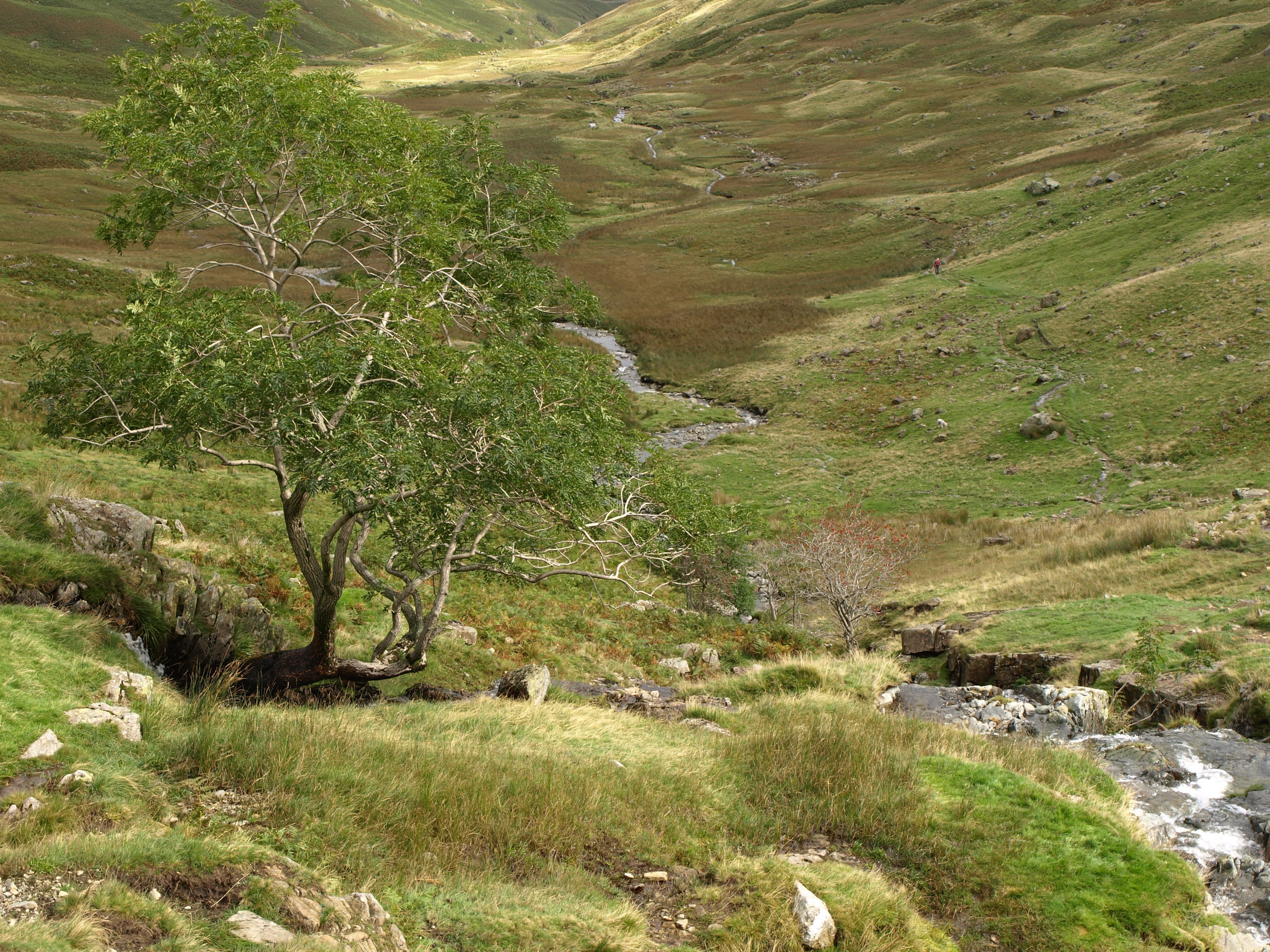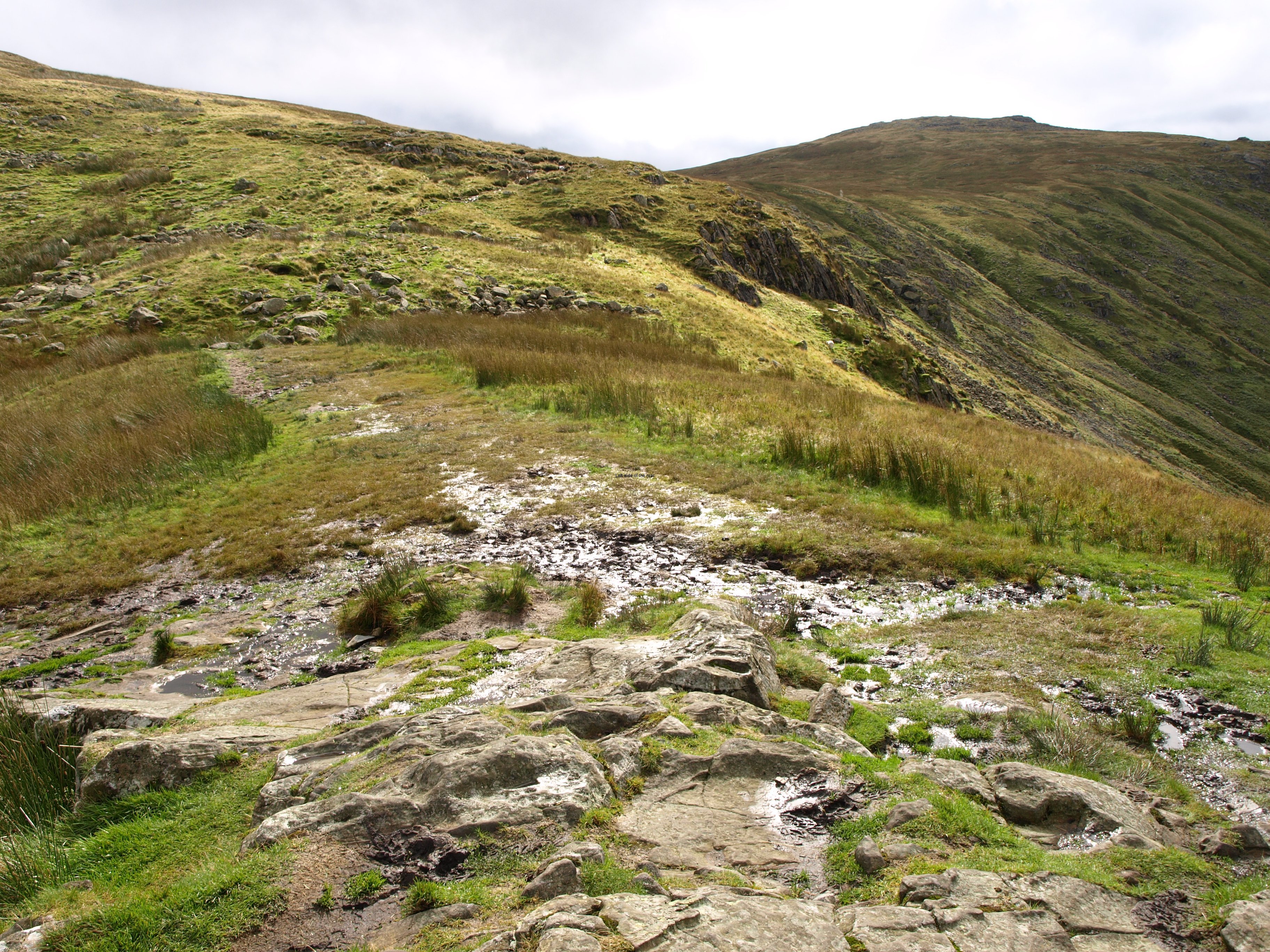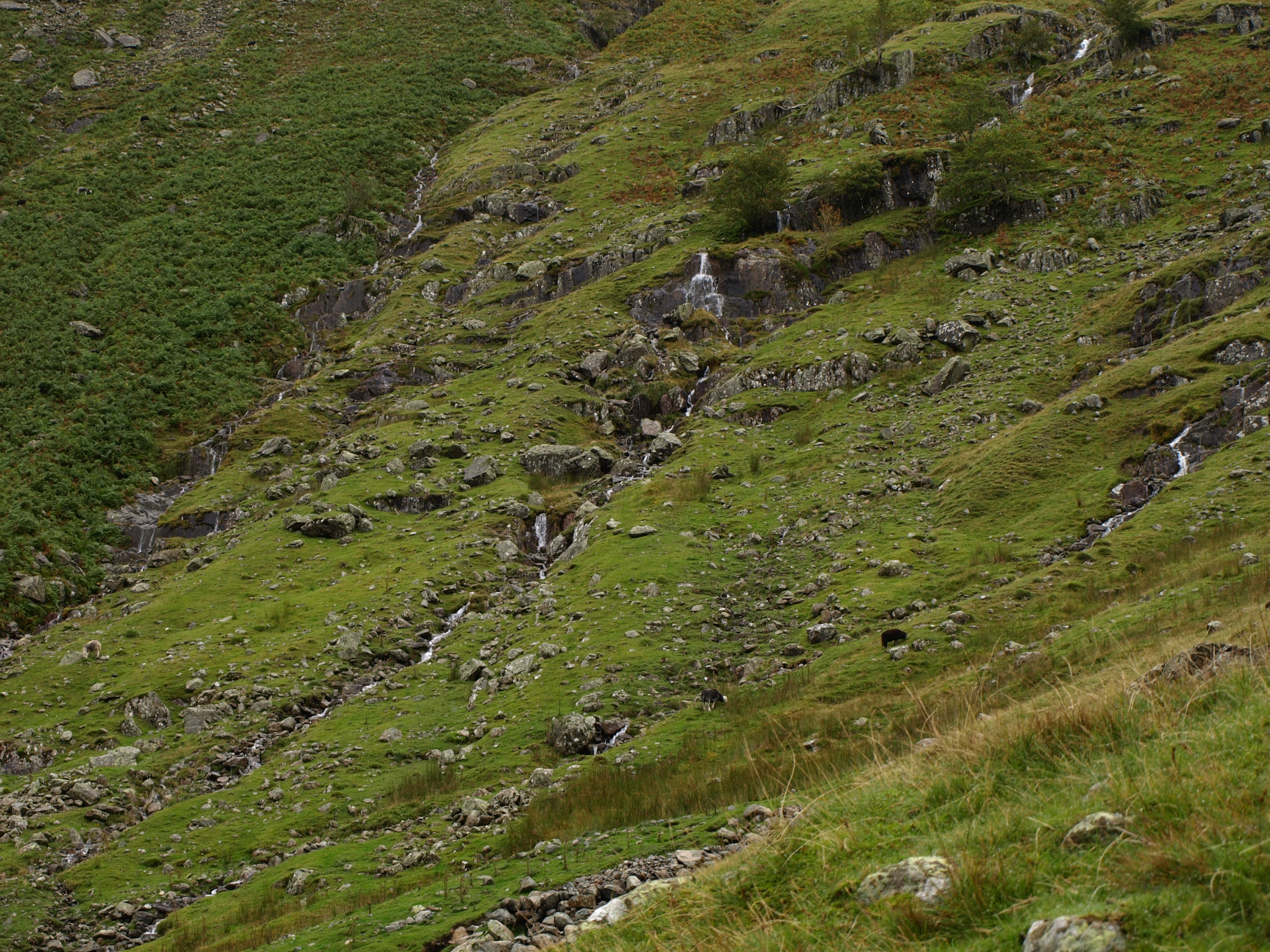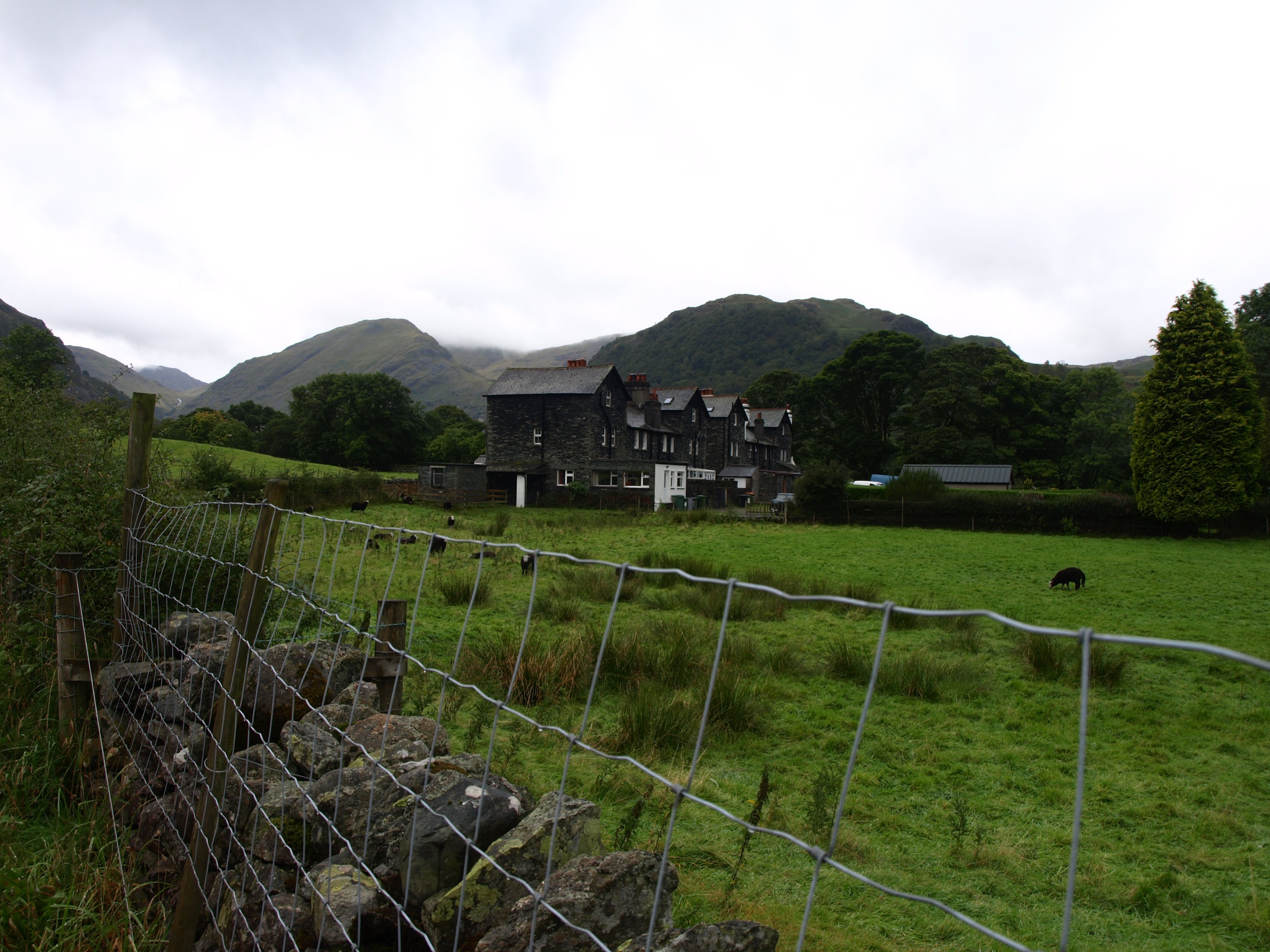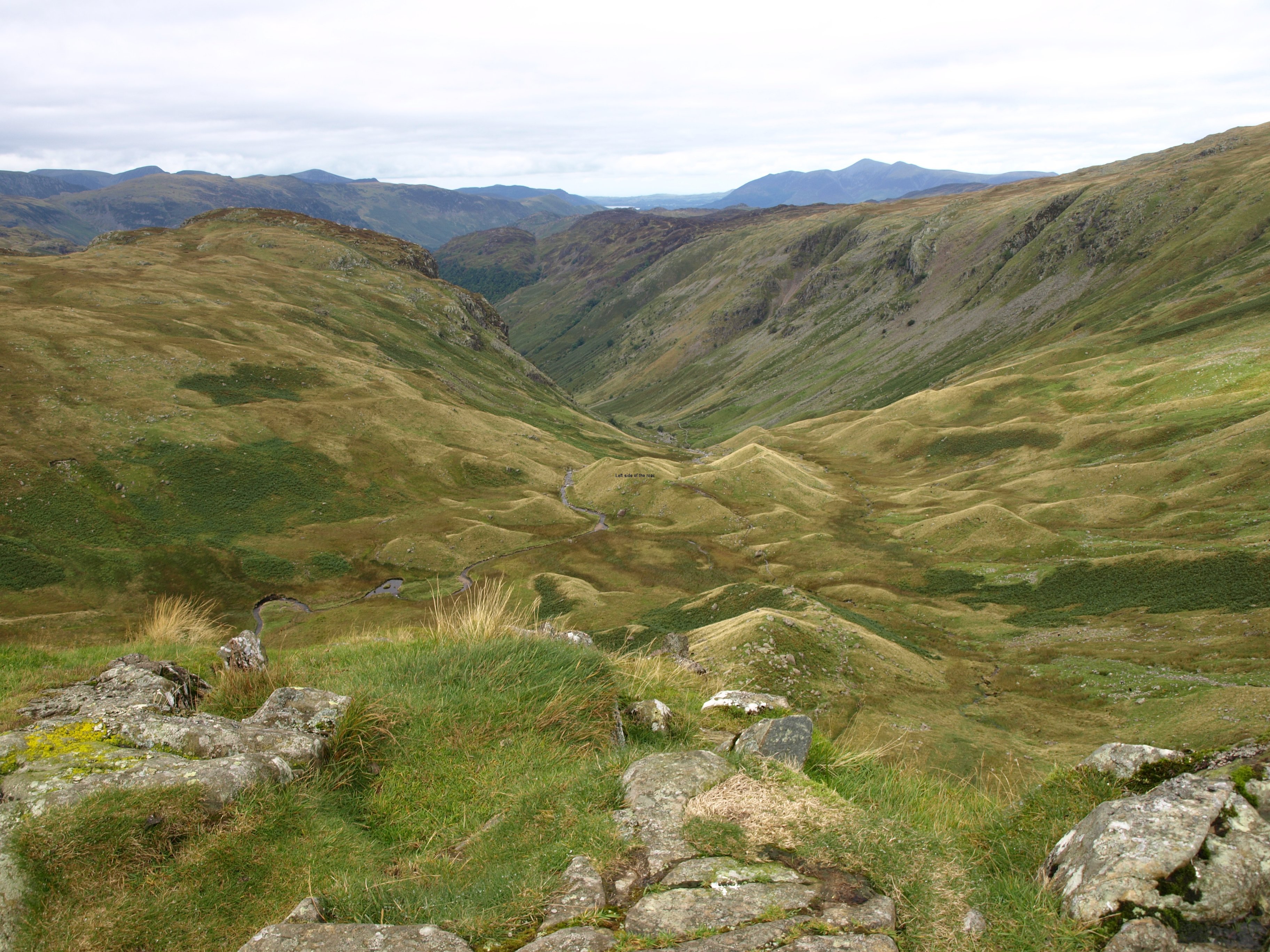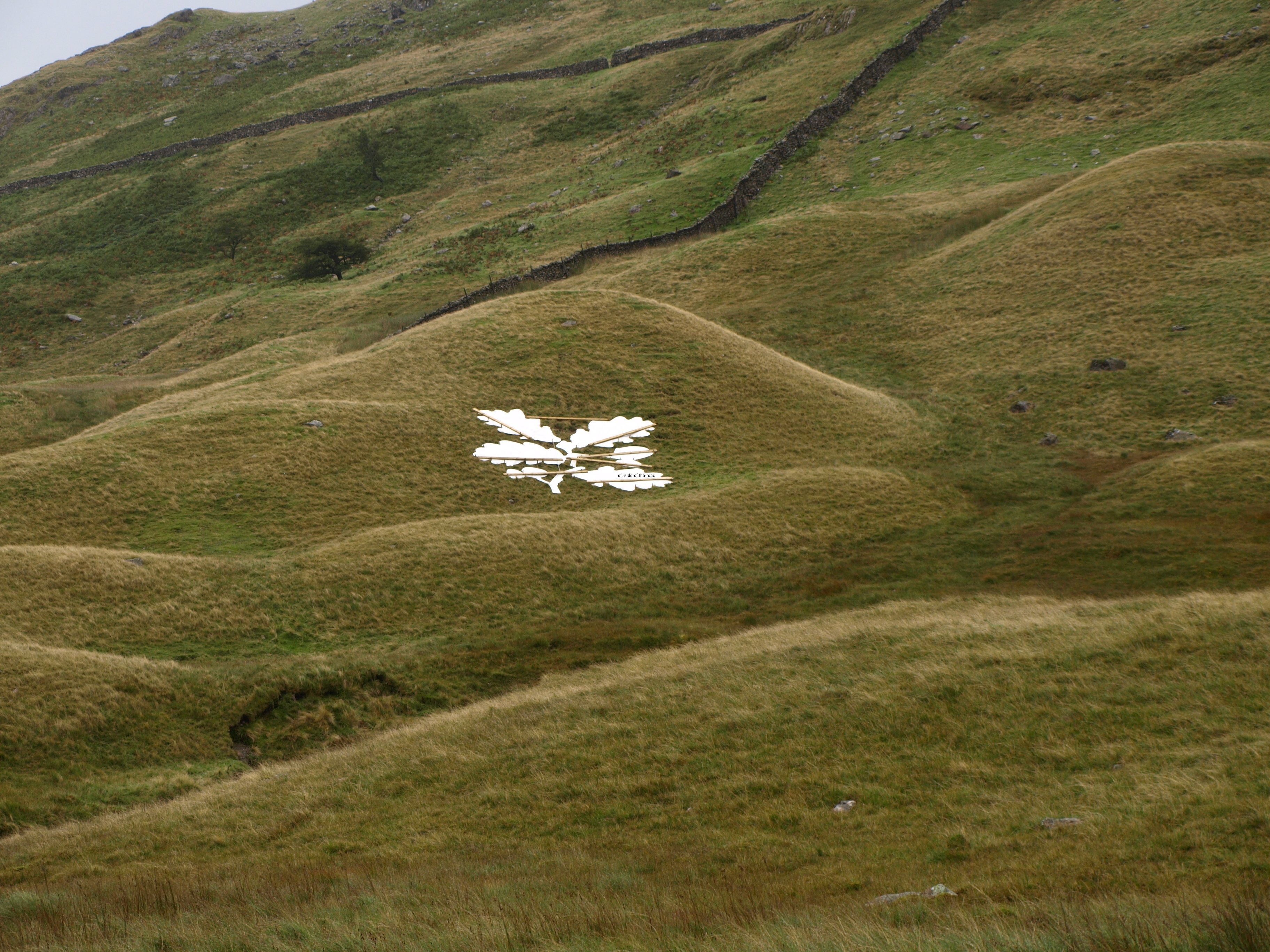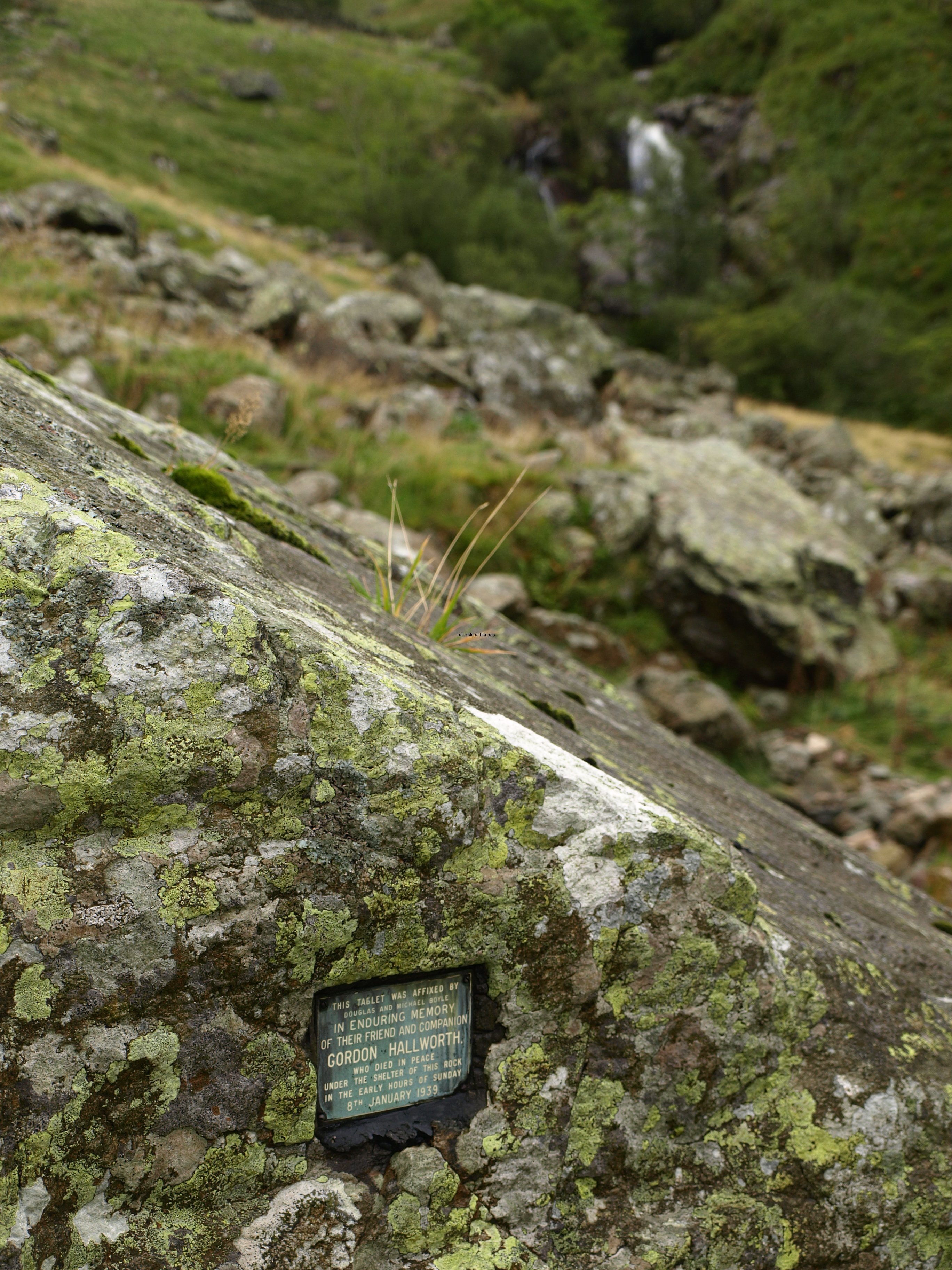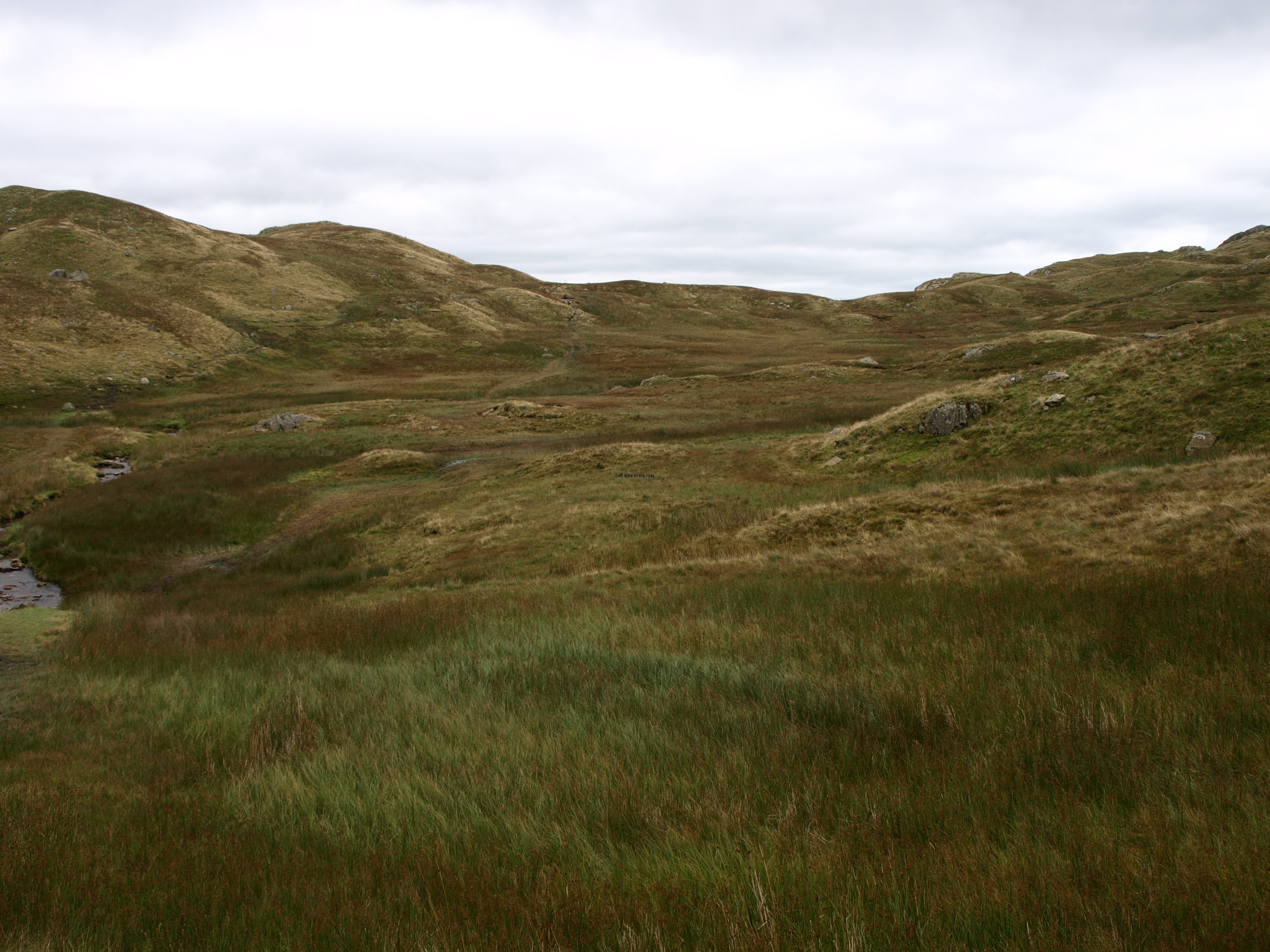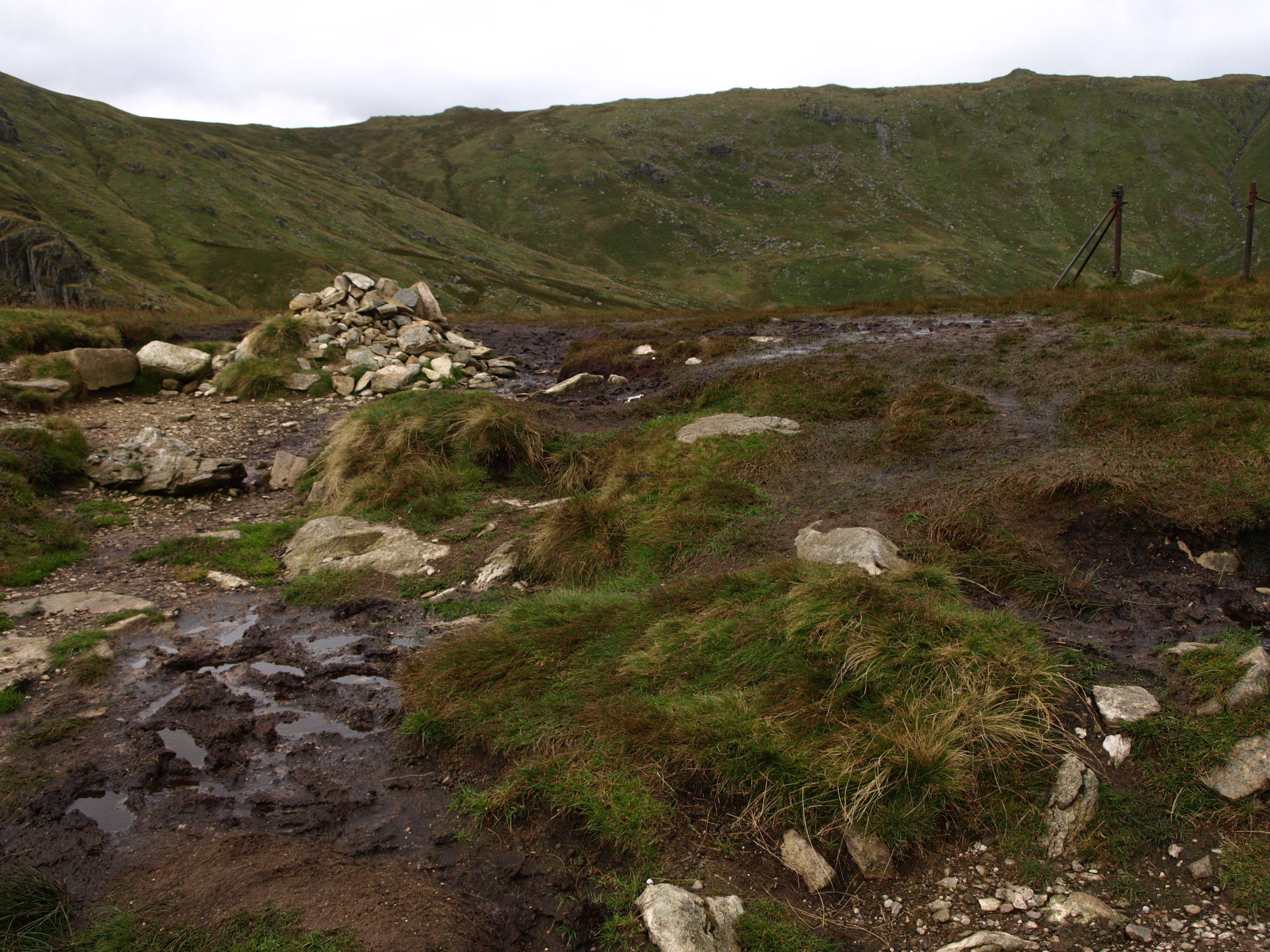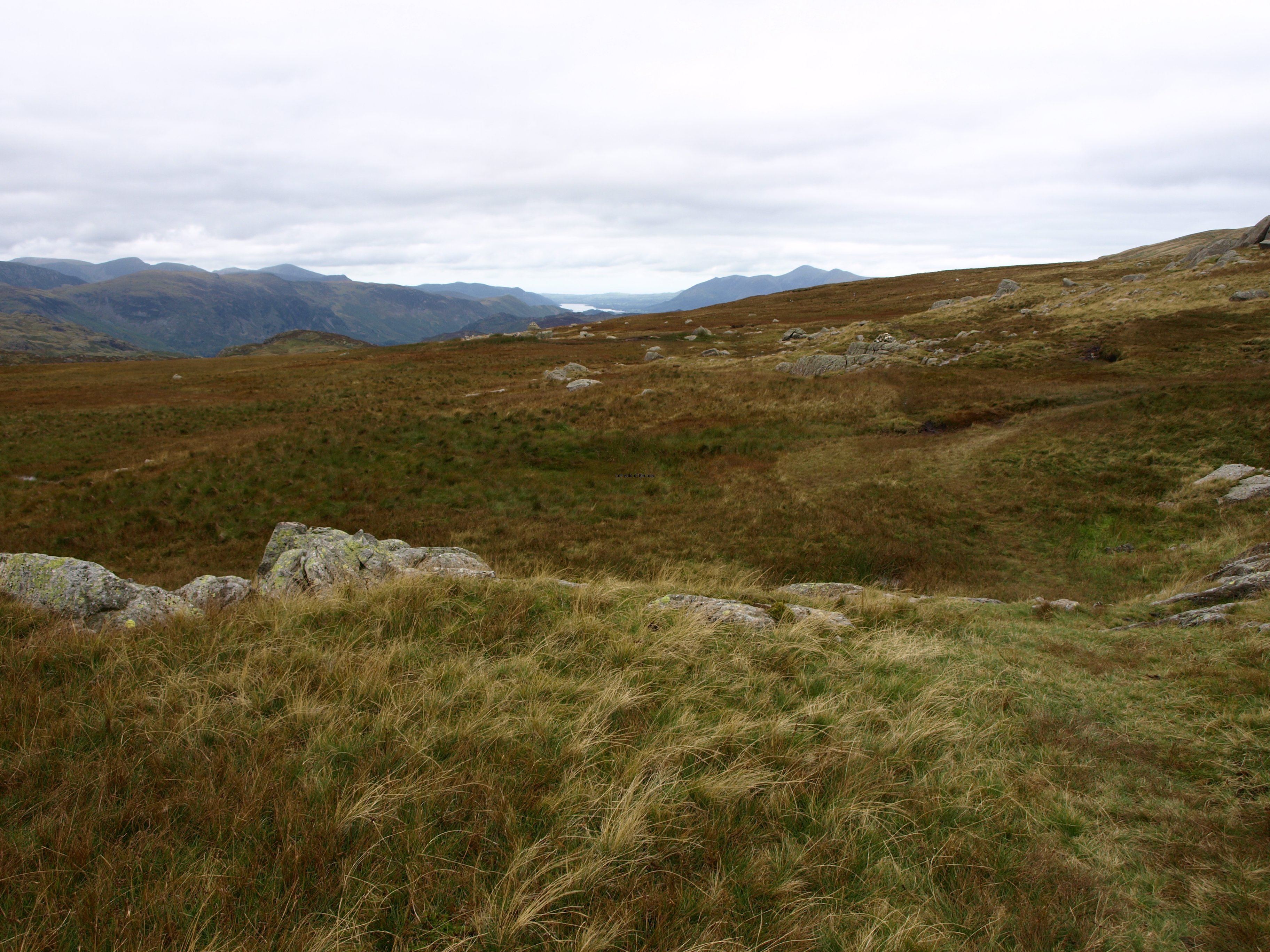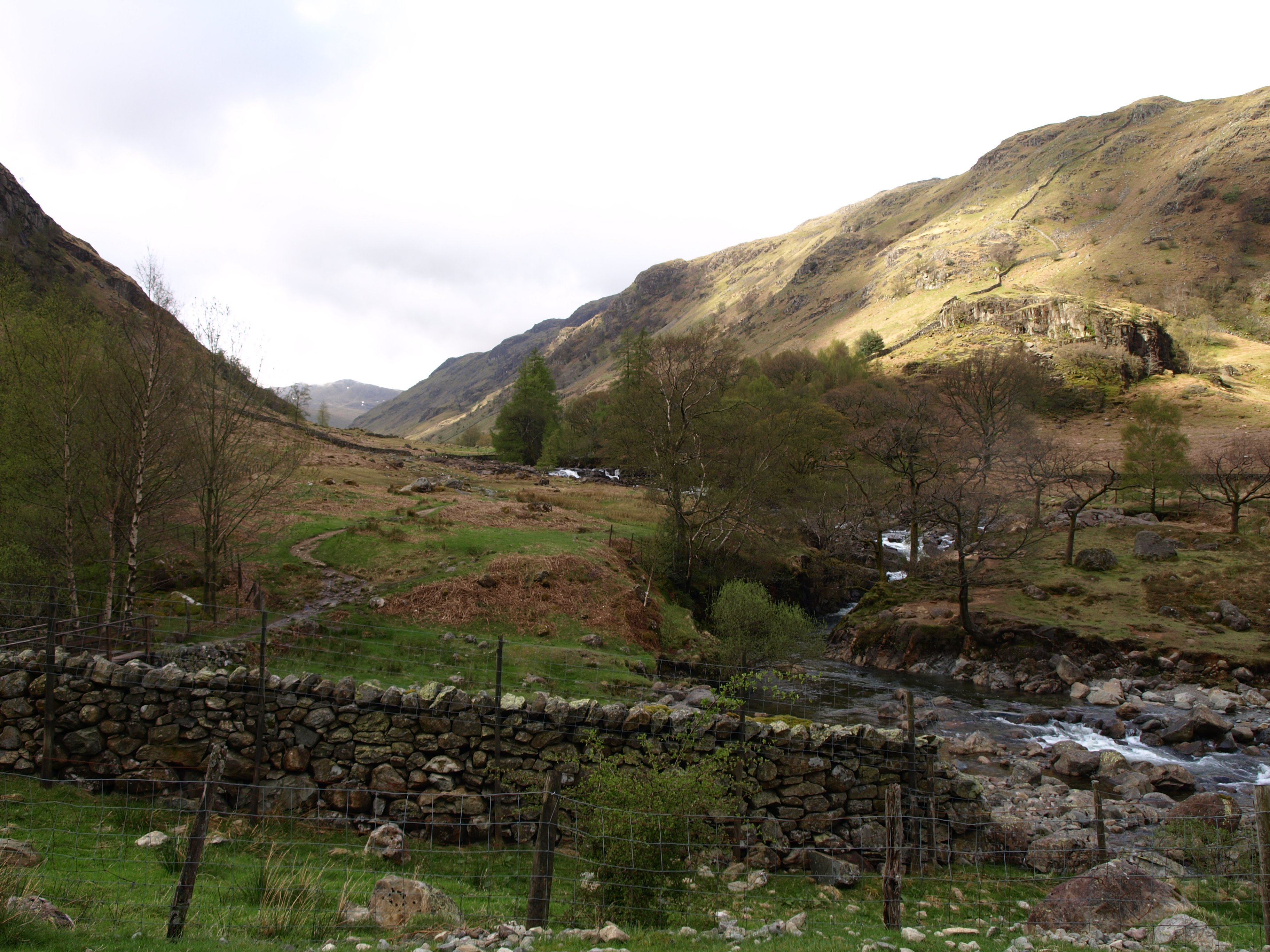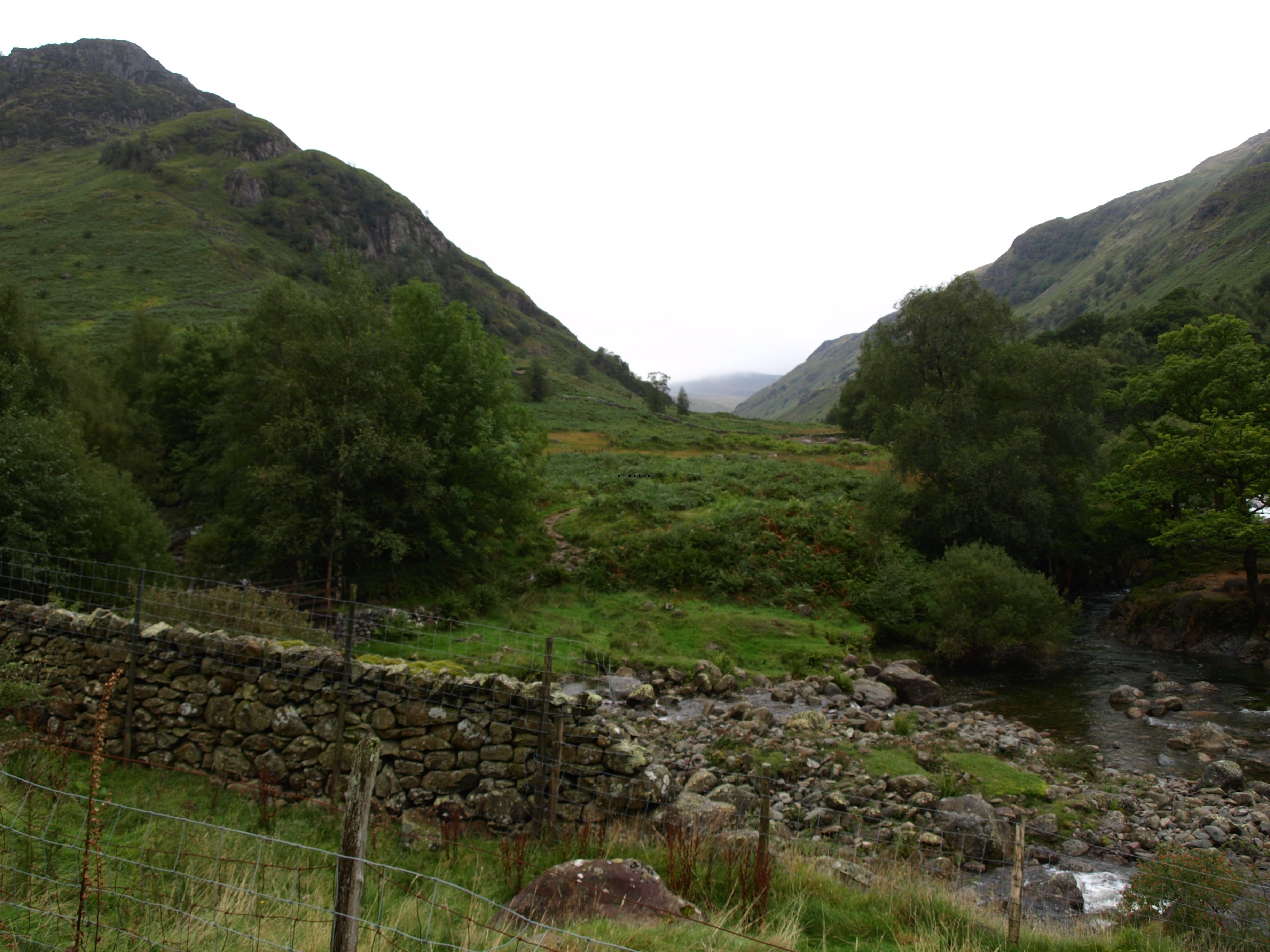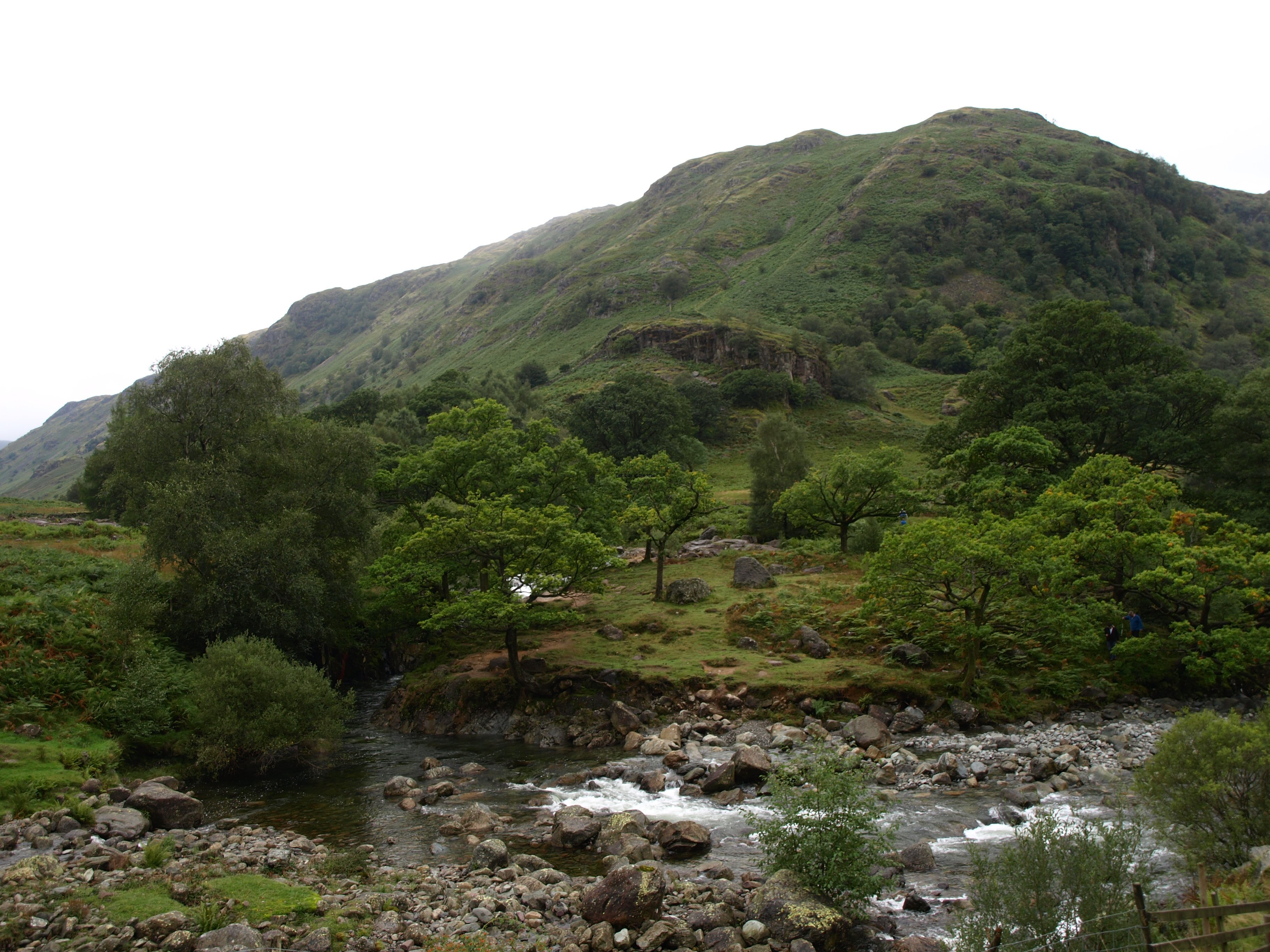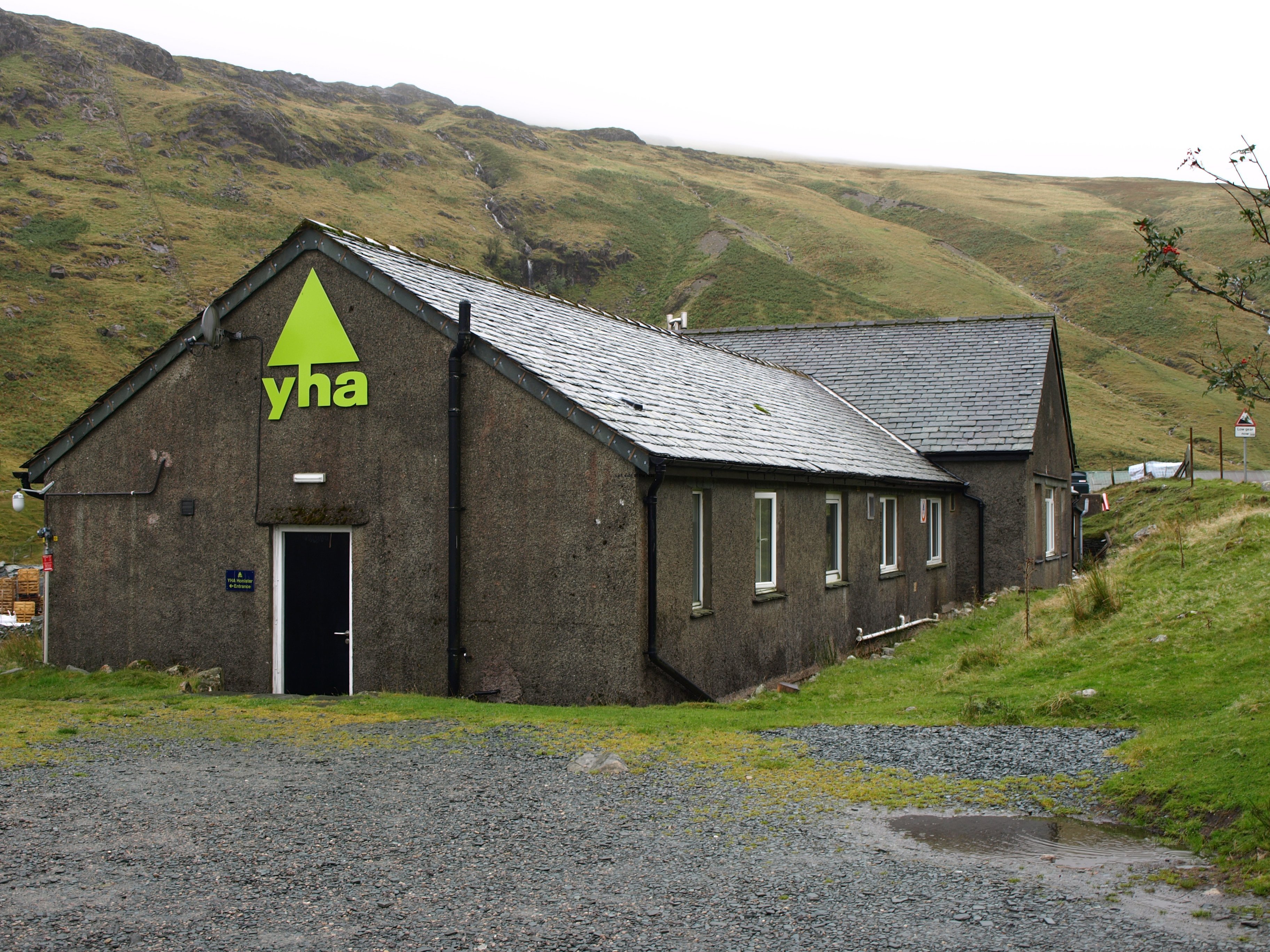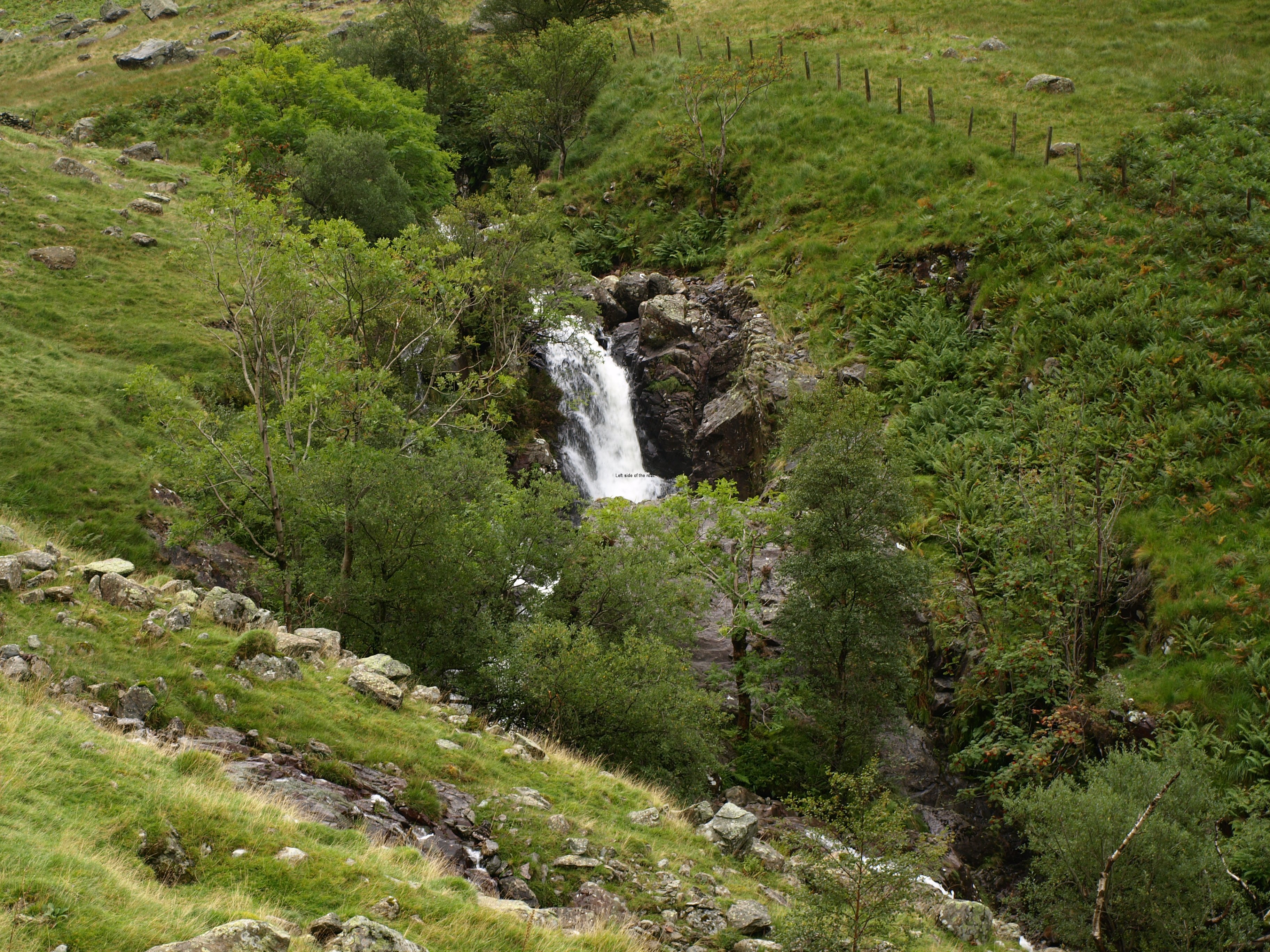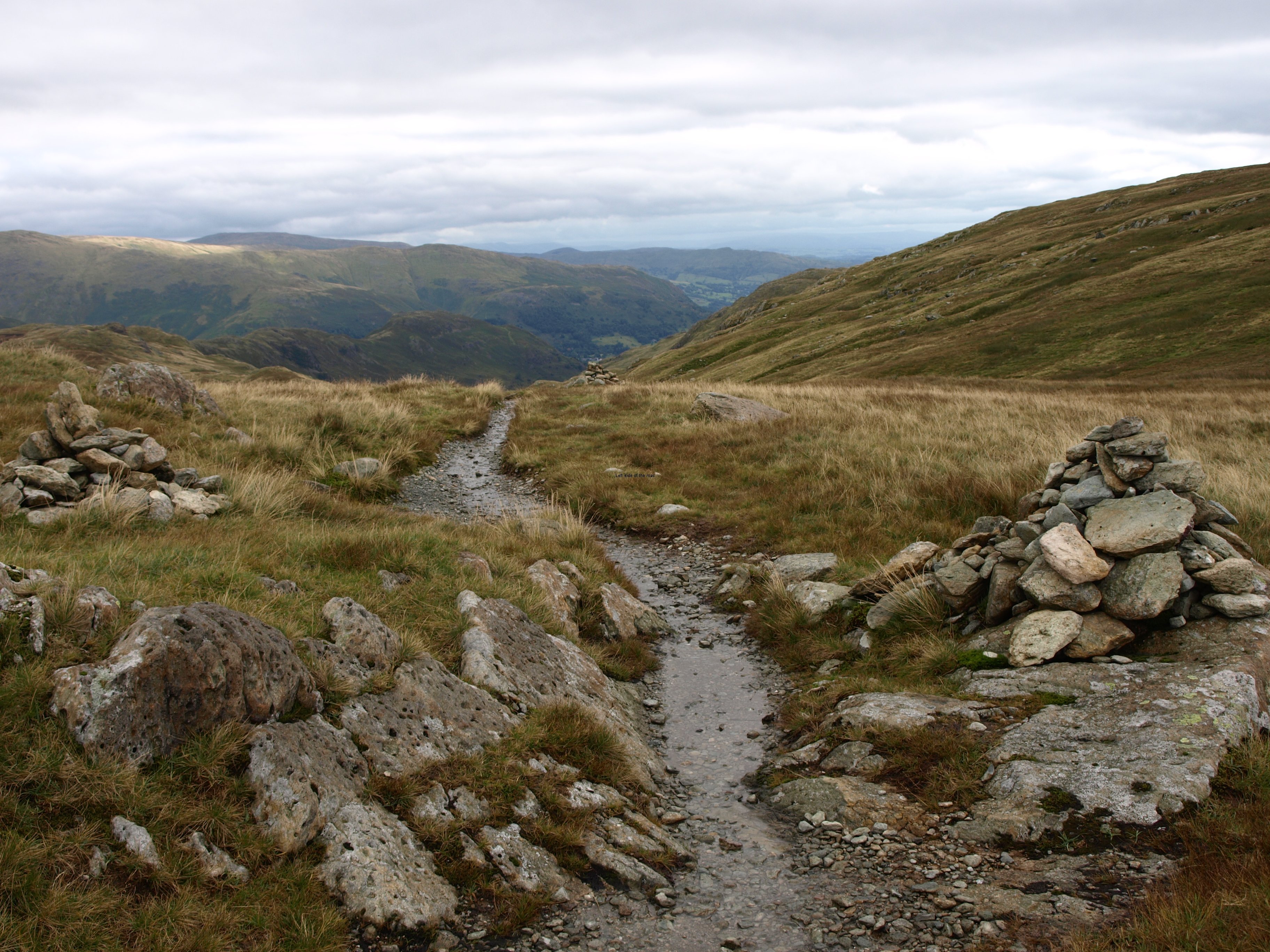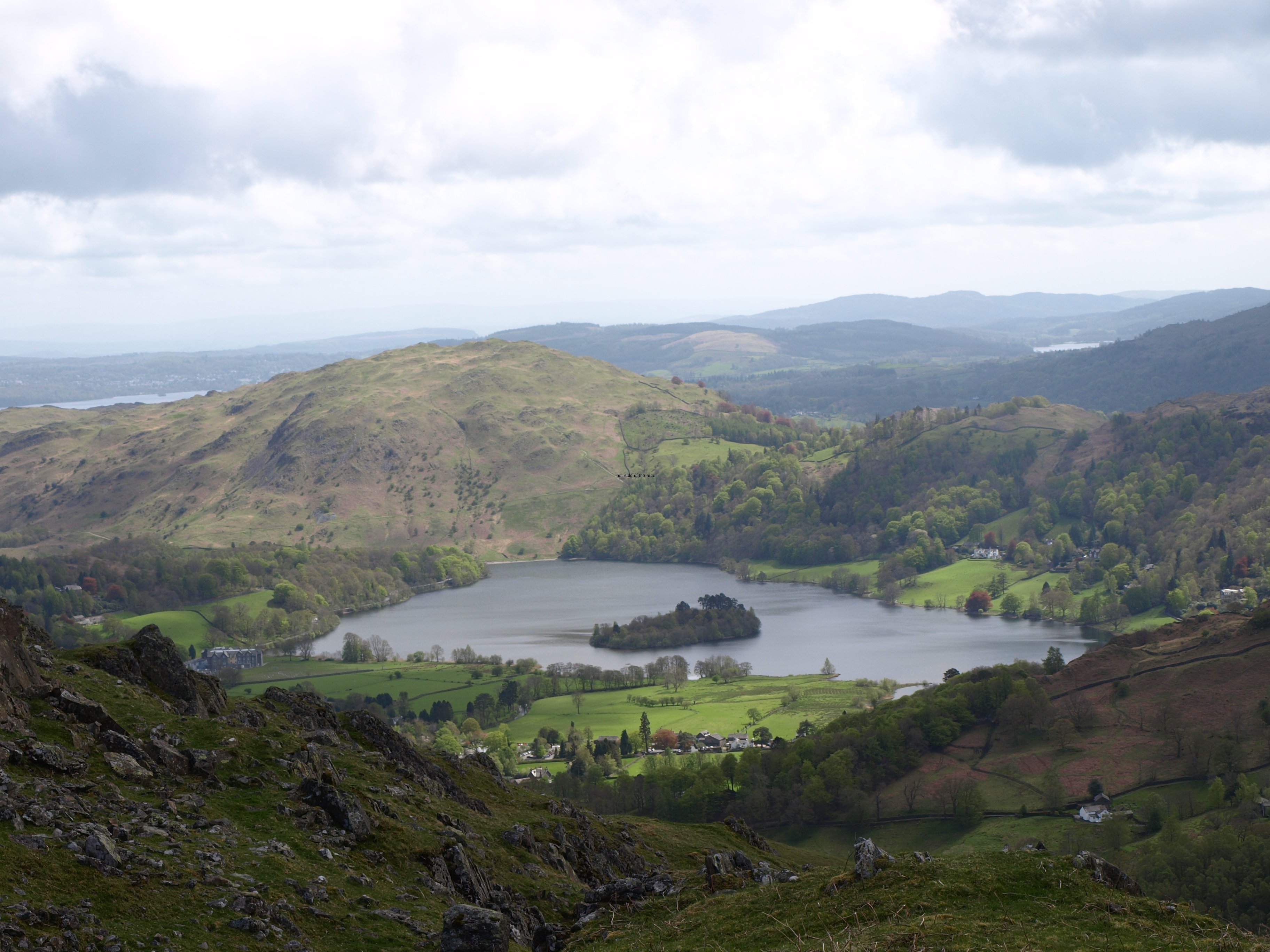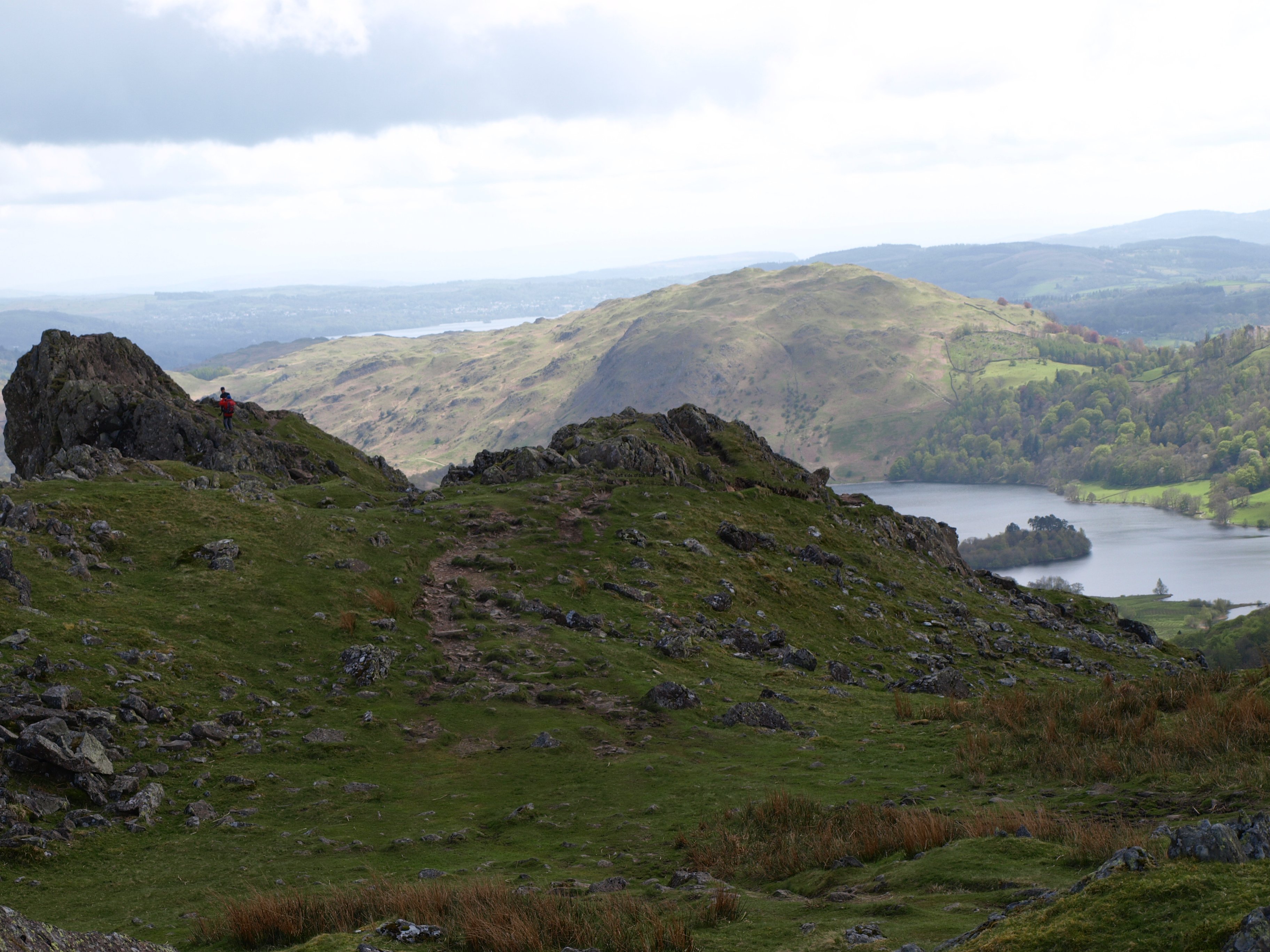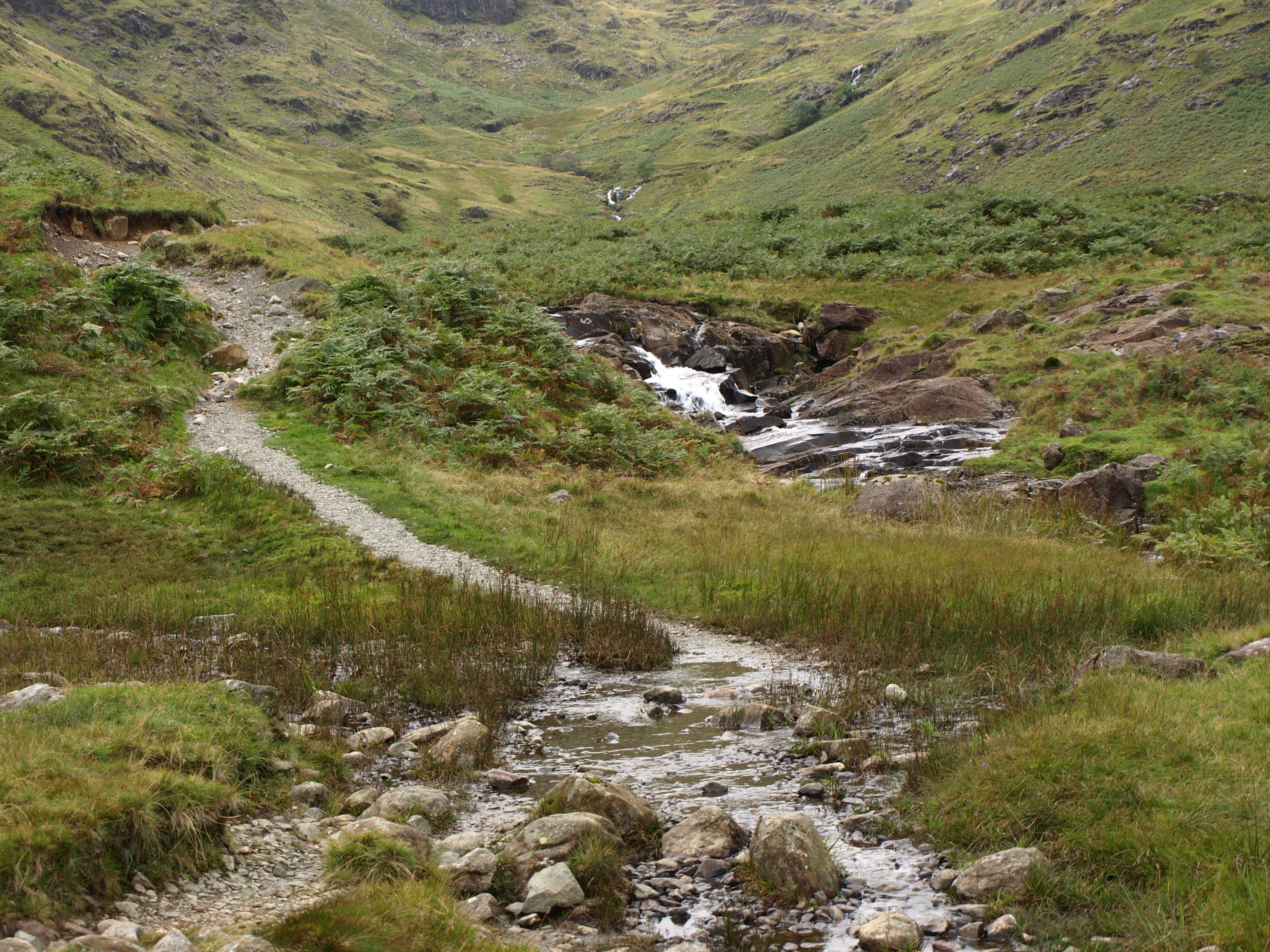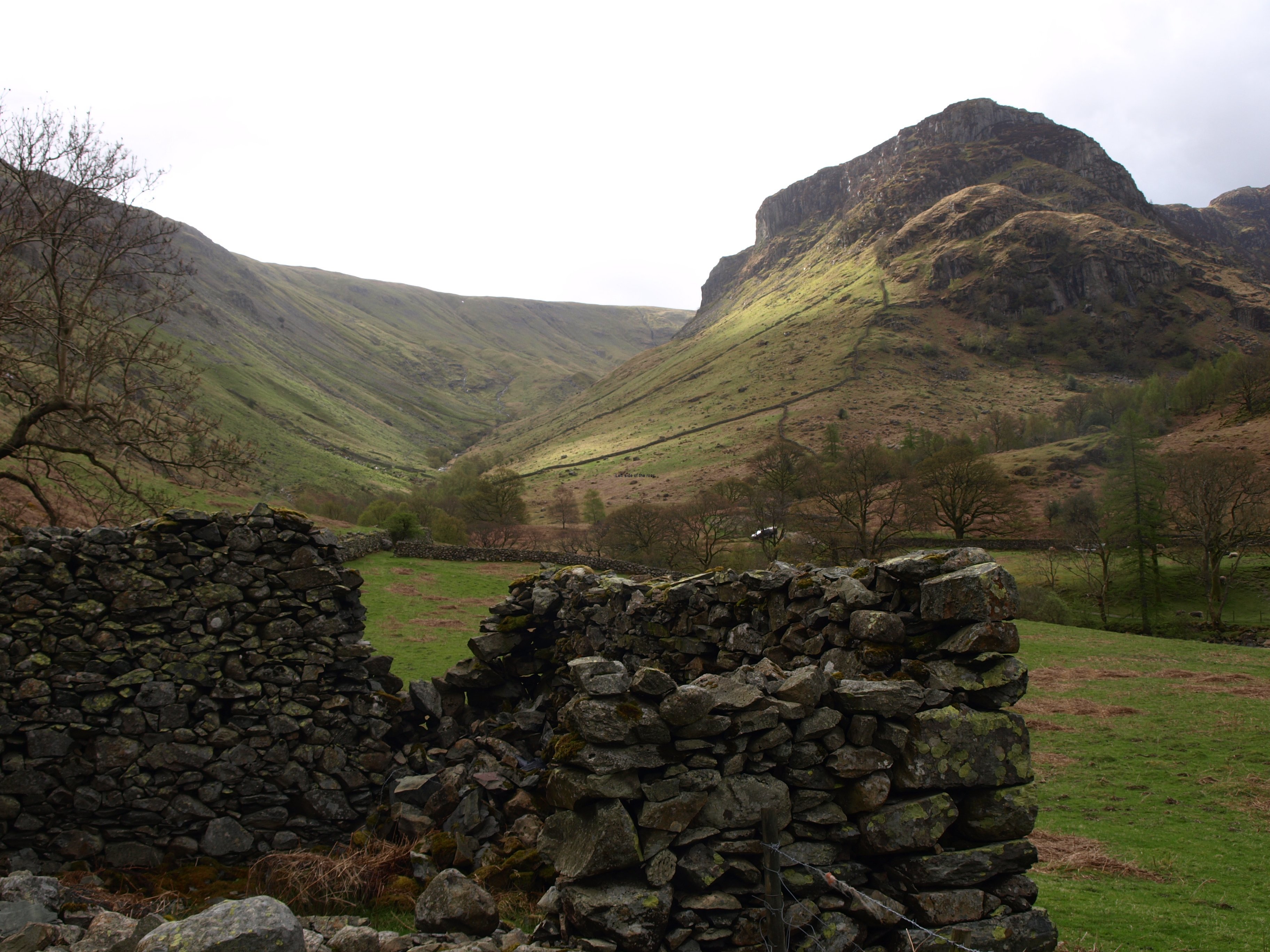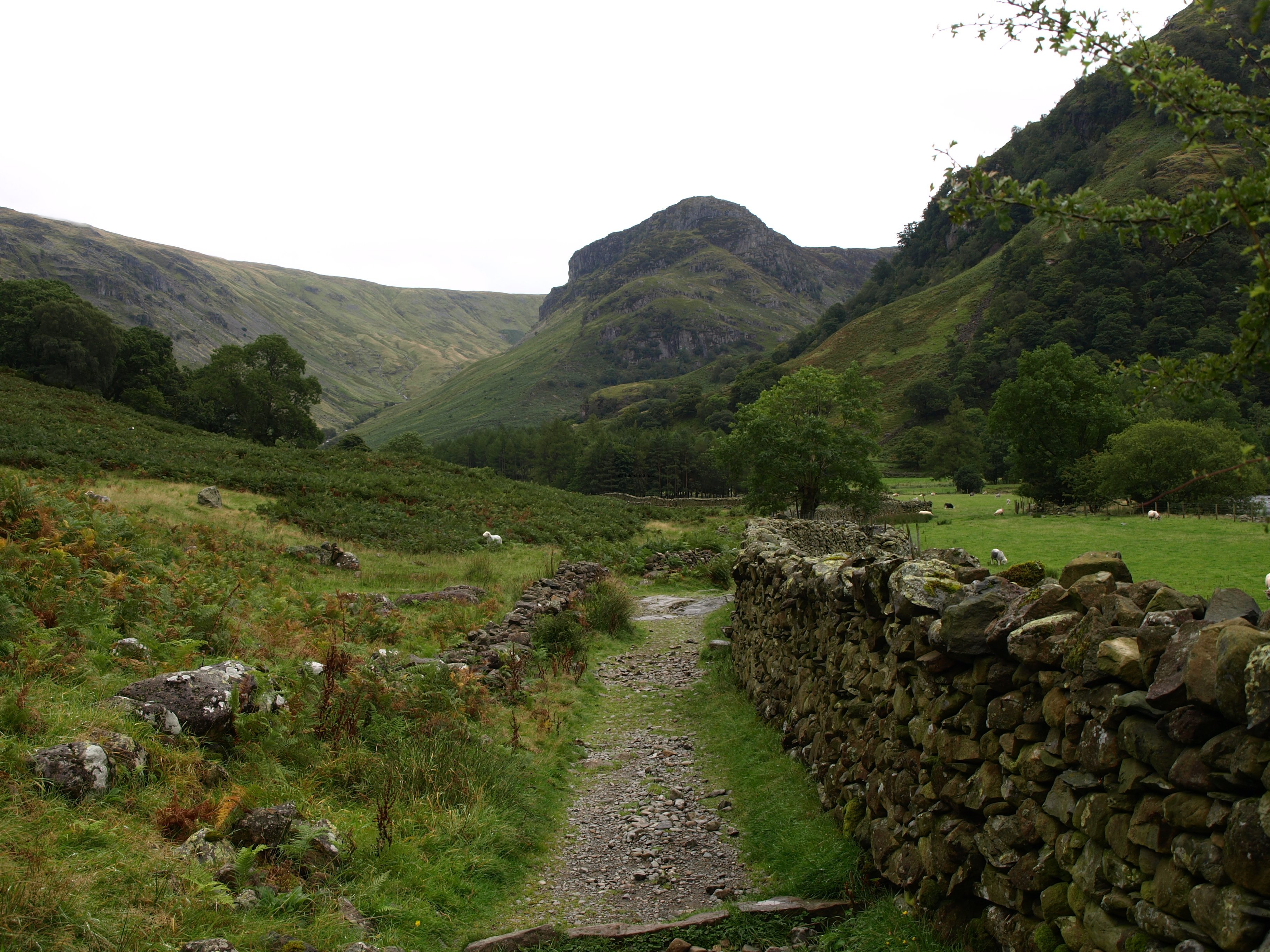
Grasmere – Lake District
More on Britain …
Chapter Three – Honister Hause to Grasmere
On the Thursday evening the warden had announced, quite triumphantly, that there would be sun on the following day, that wasn’t just the bog standard BBC television weather forecast but a local local one – the very structure of the Lake District meaning you can have a handful of micro-climates with a very small area in the same day. My optimism had taken a blow the day before so I was sceptical to say the least. I had good reason to be and was therefore not especially surprised – though somewhat disappointed – to look out the window first thing and see low cloud and not a hint of blue sky. In don’t know about other people’s definitions of good weather but for me a prerequisite is lots and lots of blue and a big, bright yellow thing making its way through the sea of blue.
But with this adventure there’s not a lot of leeway and if I was able to hang back a little the day before my goal today was a bit further away and delaying the start was not really an option. At the same time it was merely low, damp, cloud rather than the persistent rain of the Wednesday.
I wouldn’t say I’m a fan of youth hostels, although I’ve used them quite extensively in the last two or three years and consider them normally good value. But they vary enormously, not in the facilities they offer (as there has been a certain amount of standardisation in recent years and all will offer evening meals as well as breakfast and serve alcohol) but in the buildings and the type of accommodation. Honister Hause is small, only 24 maximum, and the rooms are small. In the one I spent the night there was room for 4 but only two stayed the night. Getting ready was a bit of a dance with the two of us, it would have been totally impractical with 4 all trying to get away at the same time.
(Just as an aside here British Youth Hostels separate sleeping accommodation by gender whereas in those parts of Europe I’ve visited and stayed at similar places often the dormitory accommodation will be mixed, though there is often the option of selecting a private room – something which exists in British youth hostels now, a far cry from the situation in the early days.)
There’s no real problem of being alone if you’re travelling alone as there are invariably others by themselves willing to pass the time of day and even couples will talk to a lone individual when they don’t seem to be talking amongst themselves – perhaps all that’s to be said has been.
When I was in a cheapy hostel in Tirana a couple of years ago I was speaking to an Aussie for a while and then, out of an element of politeness, I suppose, I asked him his name. He said that, as a matter of principle, he neither asked for nor gave his name, his argument being that you wouldn’t meet these people again so what was the point? Now he was (it would be good if everything related to him was in the past tense) a Thatcher-lover – suck back in the throat to capture the greatest amount of phlegm and bile and then spit it out, to eliminate the foul taste that is associated with her and hope the gobbit of filth lands on a Tory, a Tory with a yellow streak down its back or even a Labourite, after just having had to write the name.
What was wrong with his point was the matter of making it a matter of principle. Some of the people I’ve met in the last few days I’ve got to know their name, others not. But it doesn’t preclude the possibility of having a meaningful conversation. Anyway, the point of that little aside was to suggest that travelling alone doesn’t necessarily mean being alone – unless you so choose.
Right next to the YHA there’s a Slate Quarry Museum. Now I could have had a look around that the day before but was more than happy to stay in the shelter of the hostel’s porch. Don’t know much about the place but they have re-opened the mine/quarry and visitors can see what the process was like, when these quarries were real money makers. The only real evidence a walker comes across of this historical past is the stretch on the old tram way that brings you down off the plateau. This is a steep, stoney track which has had all the metal of the rails removed for scrap many moons ago. I mention this as although many see the Lake District now as a place of nature its history was one of quite a small but nonetheless important player at the time of the industrial revolution. It was for that reason, as well as the agriculture that the communities you pass through on this walk were established.
There was a bit of a drizzle when I left to make the descent down the valley towards Borrowdale to then make one of the biggest climbs of the trip to later descend into Grasmere.
This and the following day are the only sections of the walk about which I have a bit of knowledge, having done the sections Borrowdale-Grasmere-Patterdale back in May, in an attempt to gauge if myself and the equipment were up to the full trip. That makes it easier in terms of finding my way in the event of bad weather and low visibility but at the same time I ended up asking myself why was I doing this route when I had been there just about 4 months ago. But knowledge of the area did prevent losing my way and allowed for an easier day in that respect.
However, what began to dominate matters was not the hills, not the climbs, not even the descents (although they are becoming a slight issue) but the feet.
And I put the problem down to water – the same water that Barbusse described as ‘hell’.
Having worn sandals for such a long time I consider that my feet have got used to the fact and have hardened up were it was necessary. I didn’t have any problems with my feet at all on the Hadrian’s Wall walk. Although the weather wasn’t the best then it was a different type of wet. Going along stoney tracks or through grassy fields and meadows didn’t bring up any issues I had to deal with. That’s not the same in the Lake District nor in much of what is to come.
The problem with mud is that there might be a high percentage of water and a high percentage earth there’s a small percentage of little, sharp and nasty stones and even sharper and nastier bits of grit. This meant that when I arrived at the hostel on the previous evening there were small injuries to the top of my feet I had never encountered before.
Now some might say I should have anticipated that and I can’t disagree. But I didn’t. And the solution probably would have been quite simple – just wear a pair of socks. They may have been totally destroyed after a few days but they might well had prevented the injuries in the first place. Now I’m playing catch up. Trying to avoid further holes in my skin whilst at the same time preventing the existing holes from getting bigger and getting to the bone. I had spent some time preparing what I thought were preventative and restorative measure before leaving but as the day wore on they proved to have not been 100%. The blood-splattered bandages even led some to ask if I was OK. At first I didn’t understand what he meant. One of the natural defense mechanisms of the body and the creation of endorphins means that although damage might be being done the pain level is low. However, this has no effect on the cosmetic.
A rethink is on the cards for the next stage.
Another issue that will also have to be addressed is that of the knees. The poles are doing their work, and I think I’m using them more effectively now than when I was up here in May BUT they are not, perhaps they are incapable of, taking all the strain. There have been some steep descents and there are others to come and I have to address this matter of physical decay and inadequacy some time in the future. As long as I don’t have problems with the hands then, at least, I will be able to continue typing this diary.
The weather did pick up a bit, but only a little, and there was a little bit of sunshine at times but nothing that I would call good and what I was hoping for when I originally decided on this trip at this time of year.
Took some pictures today but they don’t look that great as there was never any big stretches of blue behind the green of the landscape. Everything therefore comes out dull. However, as I was here recently when the weather was a tab better I have included some of those pictures in the slideshow. I’m afraid that I won’t be presenting the Lake District photographically in any good light on this visit. The weather predictions for tomorrow don’t look too good.
So the destination for this section is Grasmere. I’m staying, yet again, in a YHA hostel, one I’ve been to before and which is based in an old country house so it has a bit of character. So the accommodation is OK but I’ve never really warmed to the village of Grasmere itself.
When I came here 2 or 3 years ago it had been many years since my first visit and I couldn’t remember a thing about the place. I just assumed that I would find a place for a drink without any problems but that’s not what Grasmere is all about. It doesn’t cater for individuals rather for organised tour groups. Obviously people arrive here under their own steam and work out how to best spend their time here but the place, at least to me, isn’t really that individual friendly, if you see what I mean.
When I did, eventually, come across a decent pub I was somewhat taken aback by the prices. This has become even more obvious on this trip as the prices to the west have been on a par with what I used to at home. However, in Grasmere you start to pay tourist prices. And I resent that.
The place that serves the best beer, and indeed the best selection of real ales in the village is called Tweedy’s Bar which is part of a big hotel (the name of which I cannot recall). The last time I was there, in May, I was sitting at the bar having a few pints and watching the world go by. Then I started to notice that there was a price differential. The locals were getting 10% off their pints, perhaps not all the beers on offer but at least one house ale. So what’s going on here.
This country doesn’t really produce anything – apart from being one of the biggest arms manufacturers in the world and the increase in the number of wars that the West is fomenting throughout the world probably accounts for the so-called increase in industrial production. That means that most towns and cities consider tourism to be an important part of their economy. For Christ’s sake, tourism is probably in the top three earners for Liverpool!
So why is it OK for there to be a two tier pricing system in a pub in Grasmere when if these wooly-backs came to Liverpool and saw that they had to pay more for the same product there would be blue murder?
The problem is that it seems that it’s OK for some places to screw the tourists but it’s not for all.
I like Venice, not least because there’s no cars. But I wouldn’t bat an eyelid if it was to sink under the cold and murky waters of the Adriatic (I’ve never been there in particularly good weather, a bit like the Lake District). The Venetians cry that the world should pay to keep their city afloat as it is of world heritage importance yet the, café owners, the restaurateurs, the gondoliers et al treat the visitors in the same way as the pickpockets. At least the pickpockets are honest thieves and villains.
Mind you why someone should pay more than what many workers get for an hours work on the minimum wage for a cup of coffee just to sit in St Mark’s Square to get a pigeon to shit in it is beyond me – but then I suppose there’s no counting for taste.
Perhaps with the influence of climate change both Grasmere and Venice will disappear under the water. In thousands of years time academics will debate the meaning of local legends of self-important gondoliers singing love songs and debate what ‘a host of golden daffodils’ might be, now that we would have killed them off in our worship of the car and the magic liqueur oil.
Having made the decision the day before not to go up hills ‘just because they were there’ I managed to get down to Grasmere reasonably quickly and without further incident.
Only one fall to-day, although there were a number of near misses. Don’t know if that means I’m learning to walk or perhaps am using the poles more effectively. When will there be a fall free day?
Resenting the discrimination I fought against the attractions of Tweedy’s Bar and used the time to add the first posts to the blog. Internet connections should become available for the next few days, if not in the place I’m staying at least close by.
So at 16.00 on the afternoon of Friday 20th September it was 37.5 miles down, 162.5 to go.
Practical Information:
Accommodation
Grasmere YHA
Although I didn’t eat here myself the night I stayed there were a number of positive comments about the evening meal from a number of people I talked to whilst sitting in the lounge. The YHA hostel in Grasmere is in a big, converted country house and has quite a substantial garden at the front of the building. There is also an annexe where there are self-catering facilities.
More on Britain …
Previous Next



